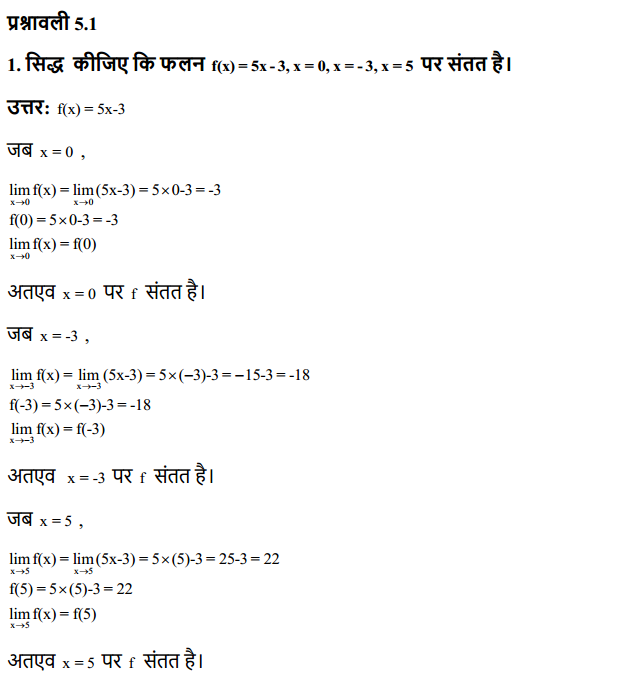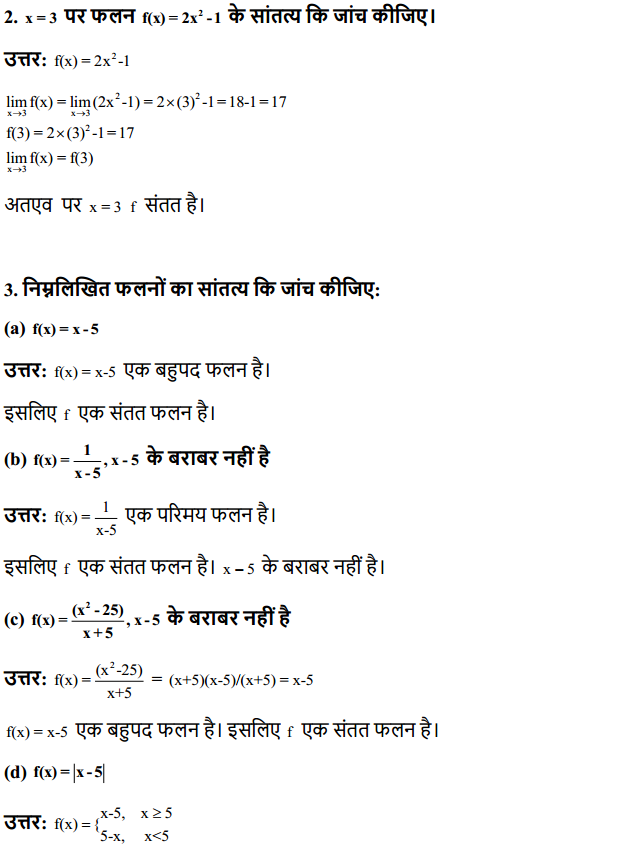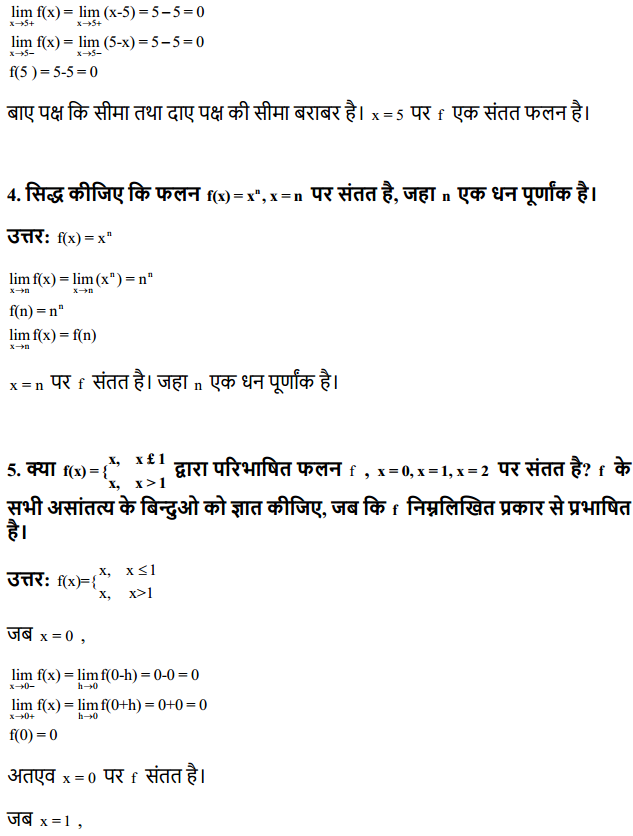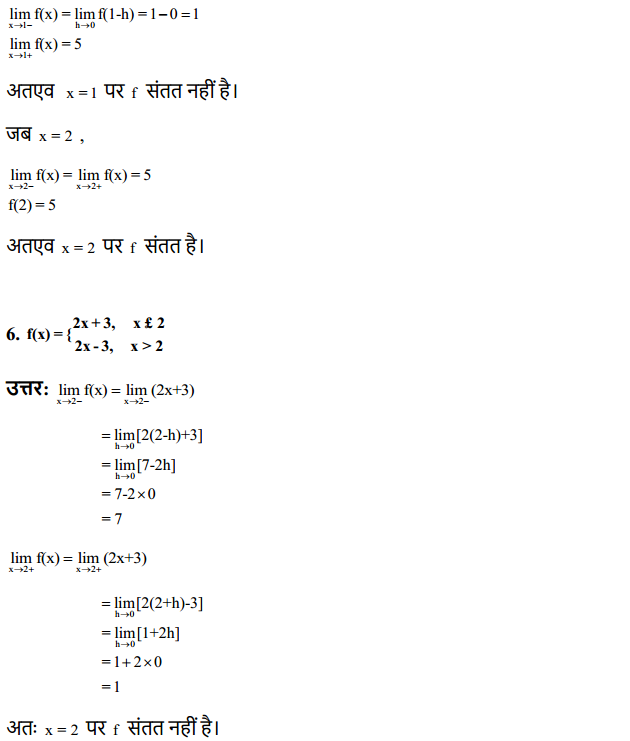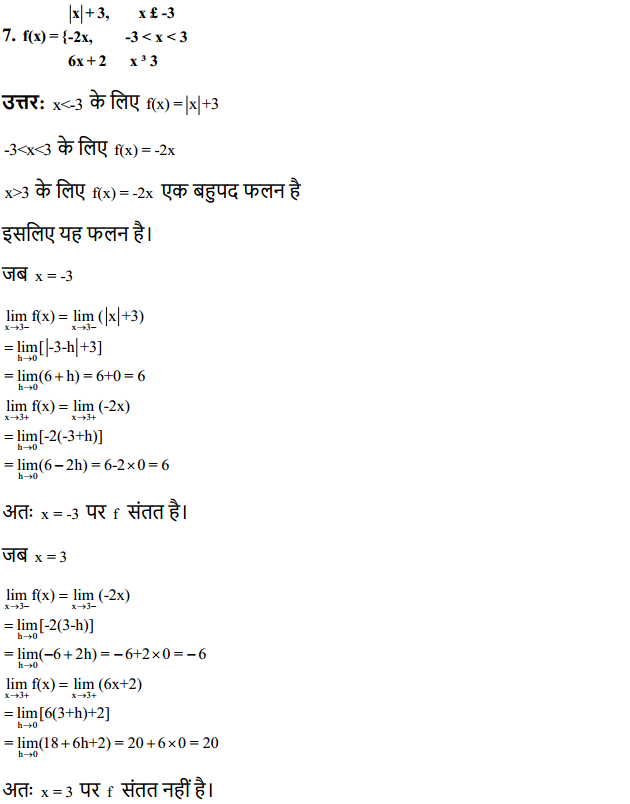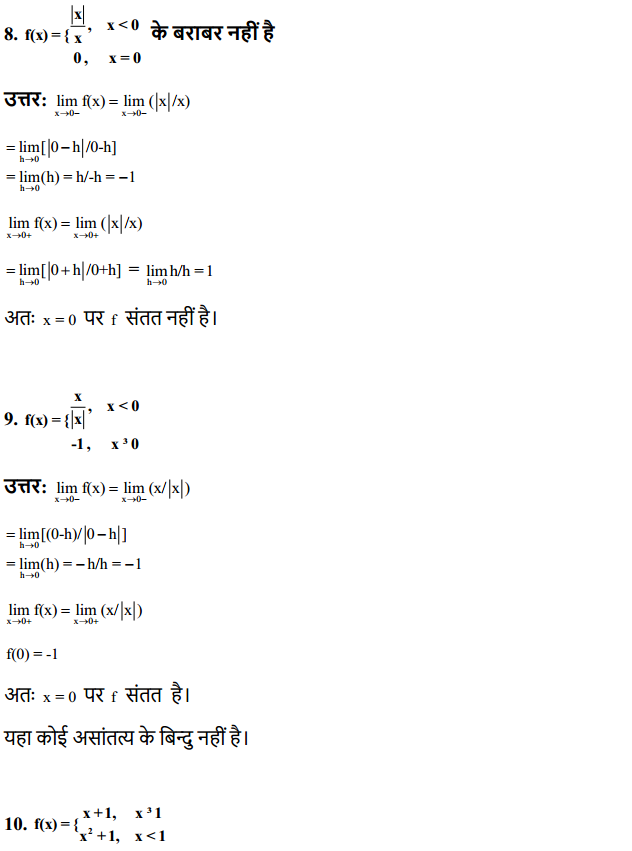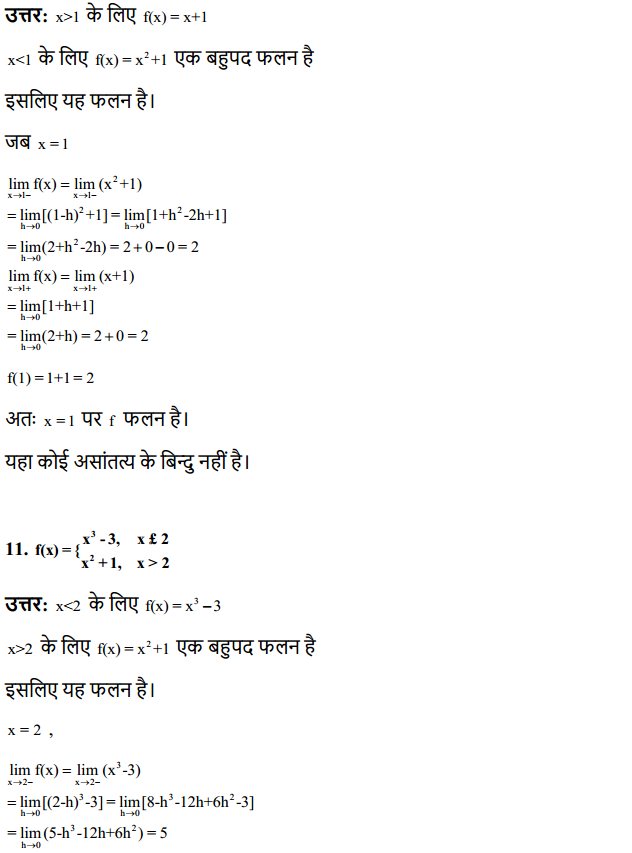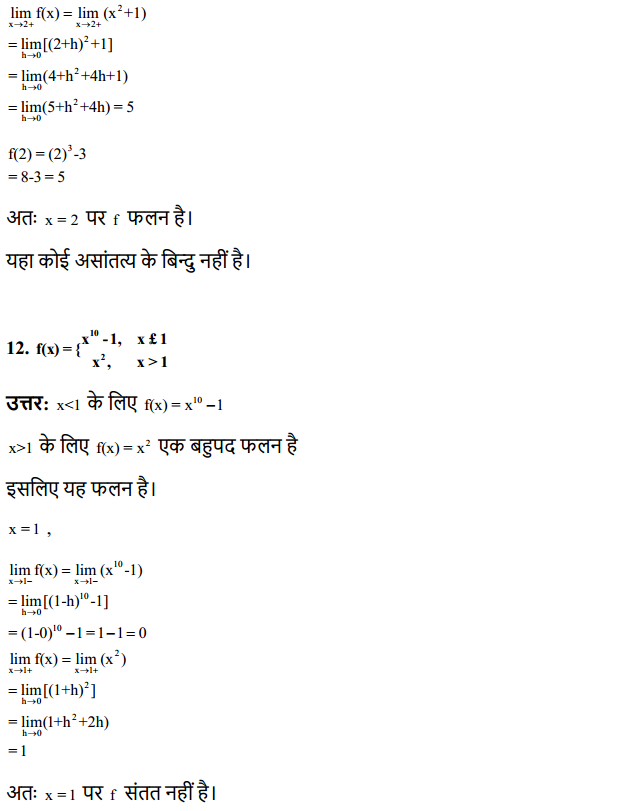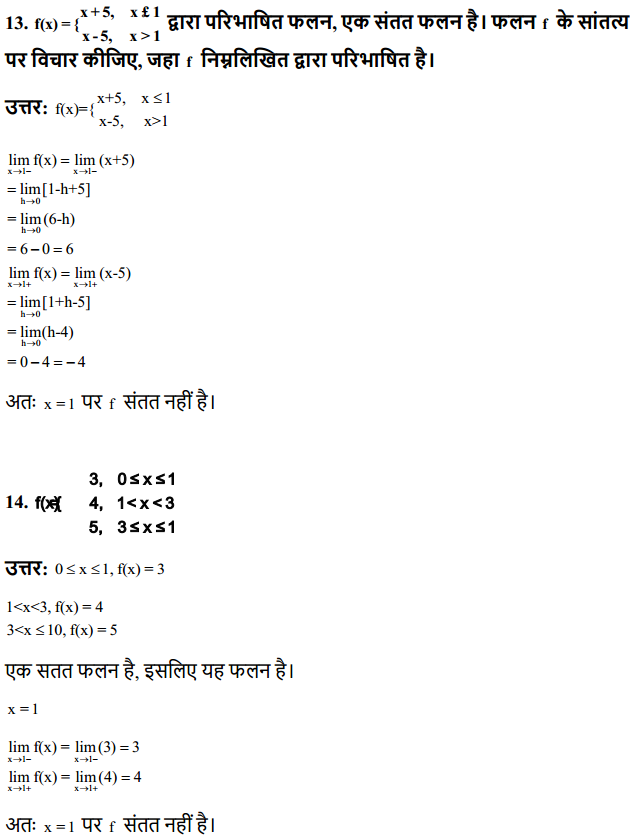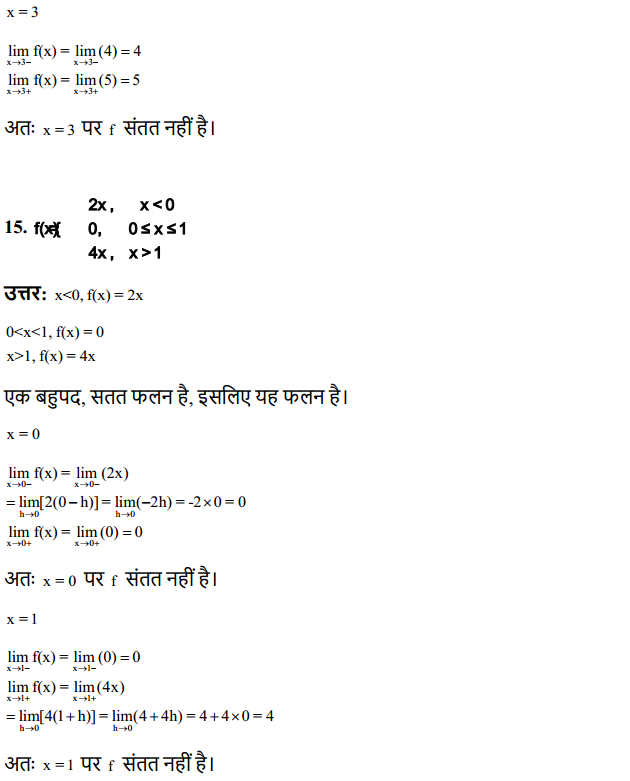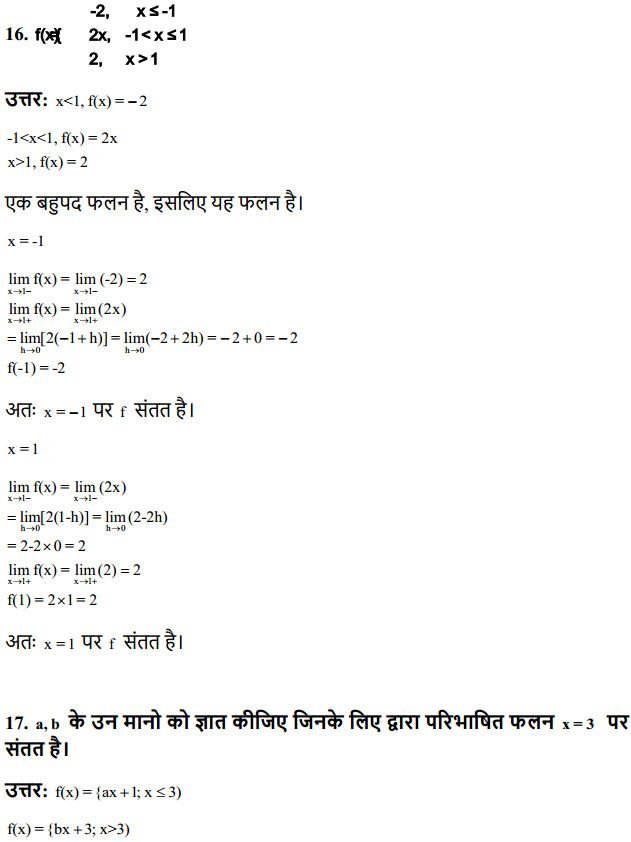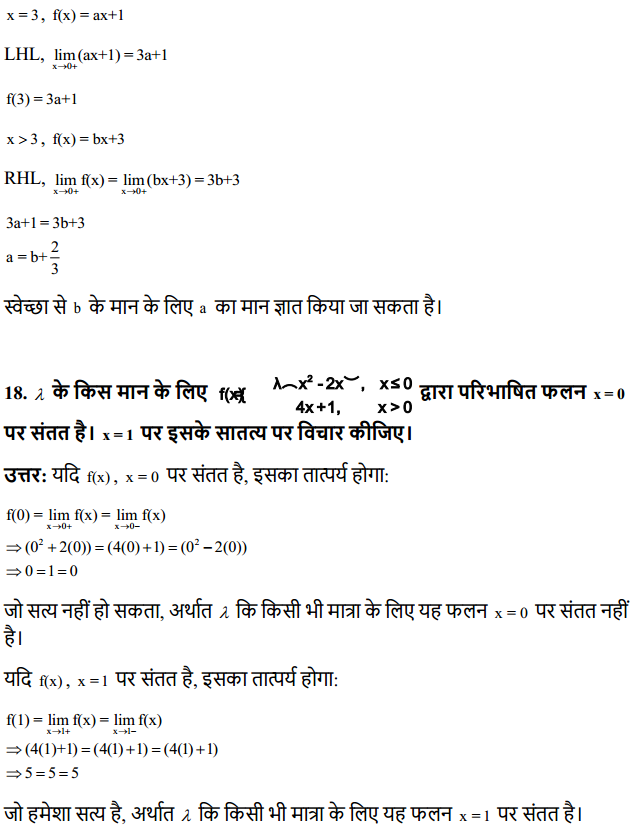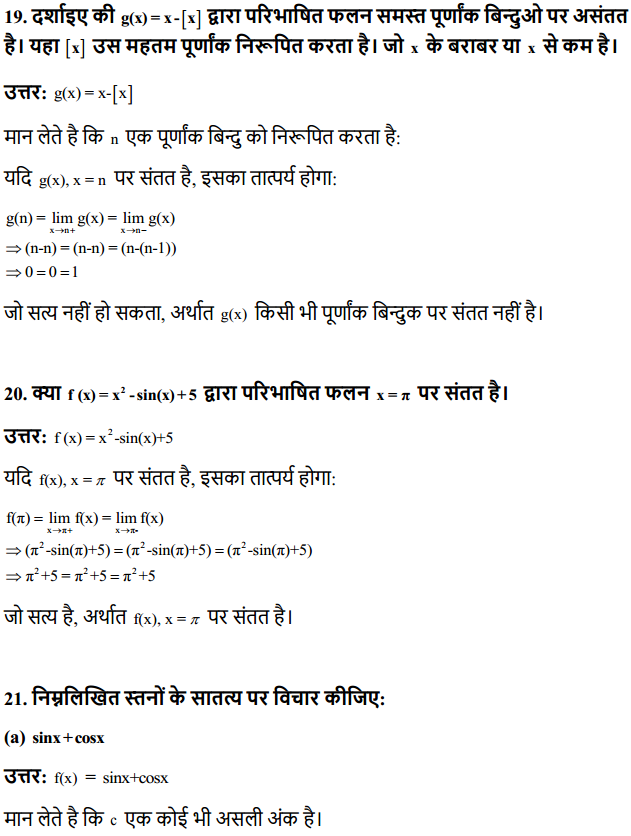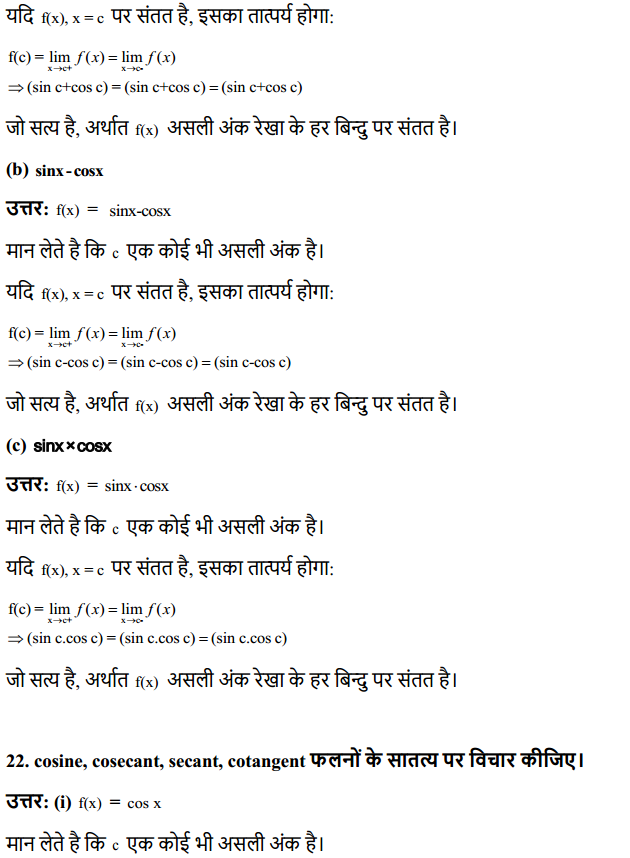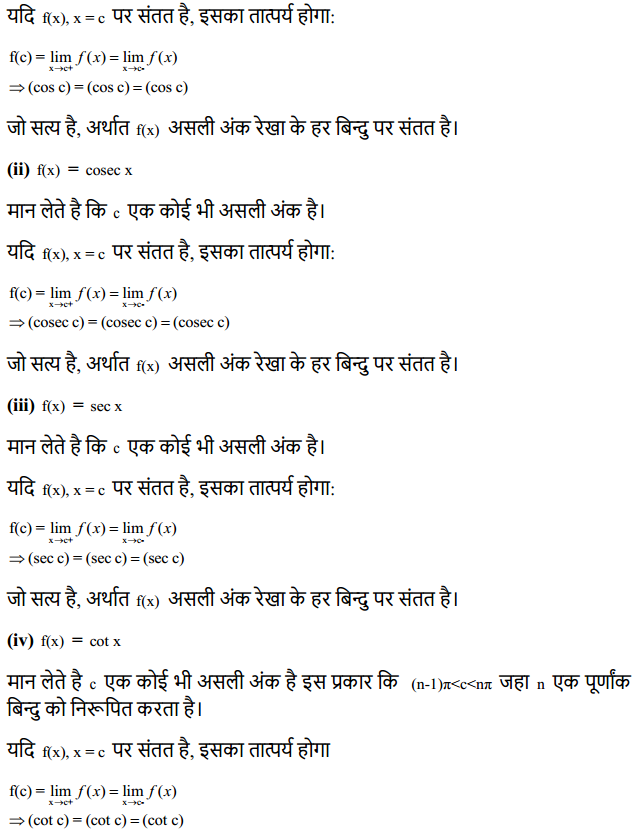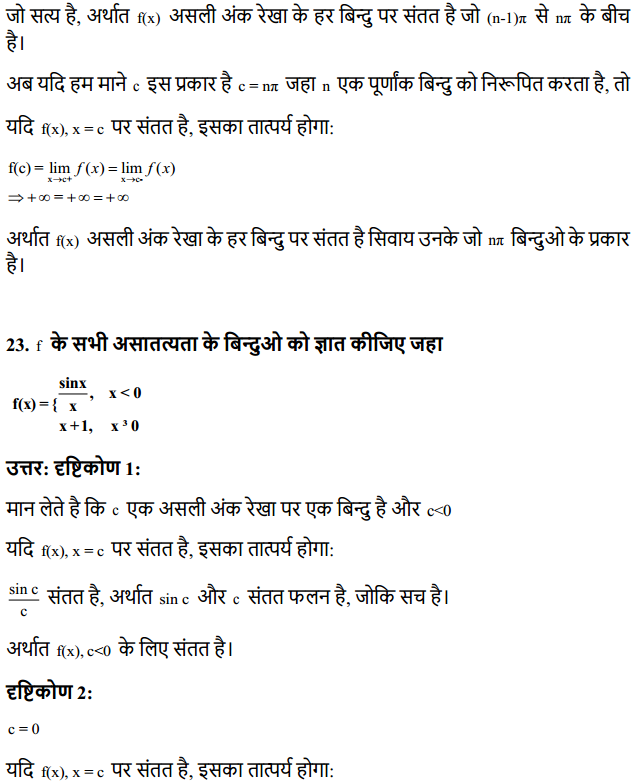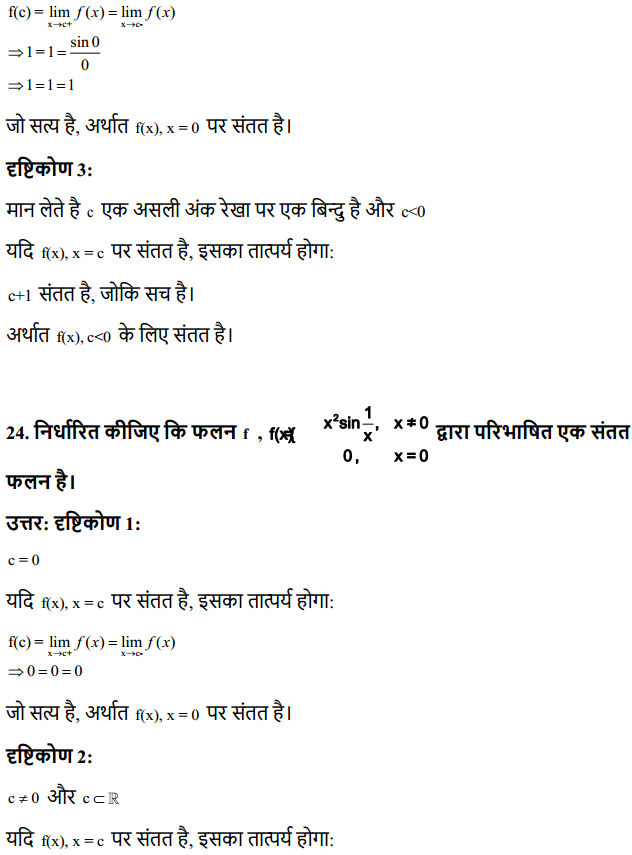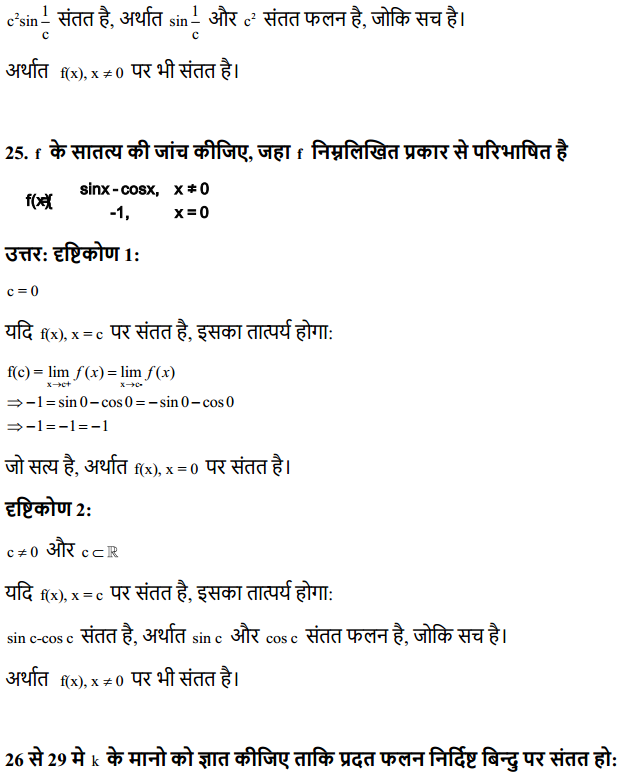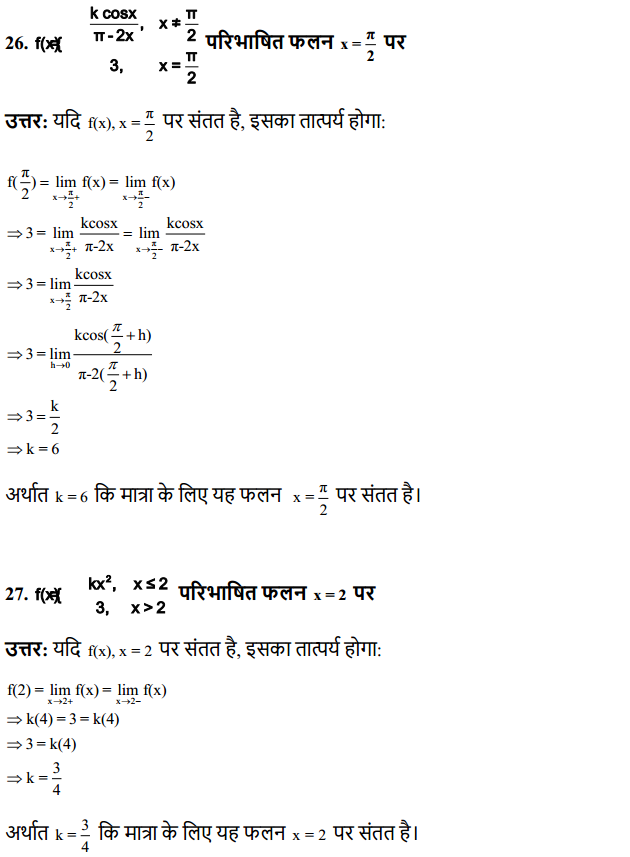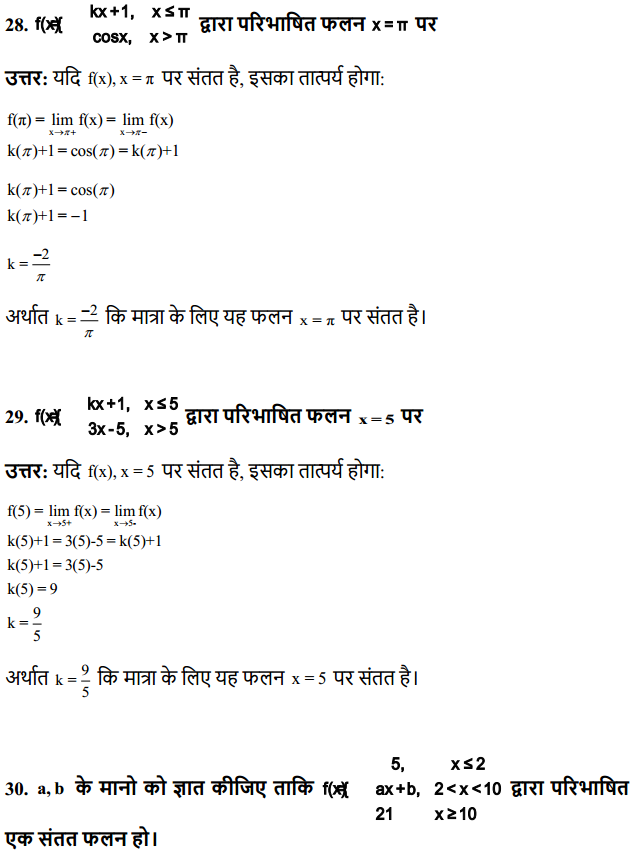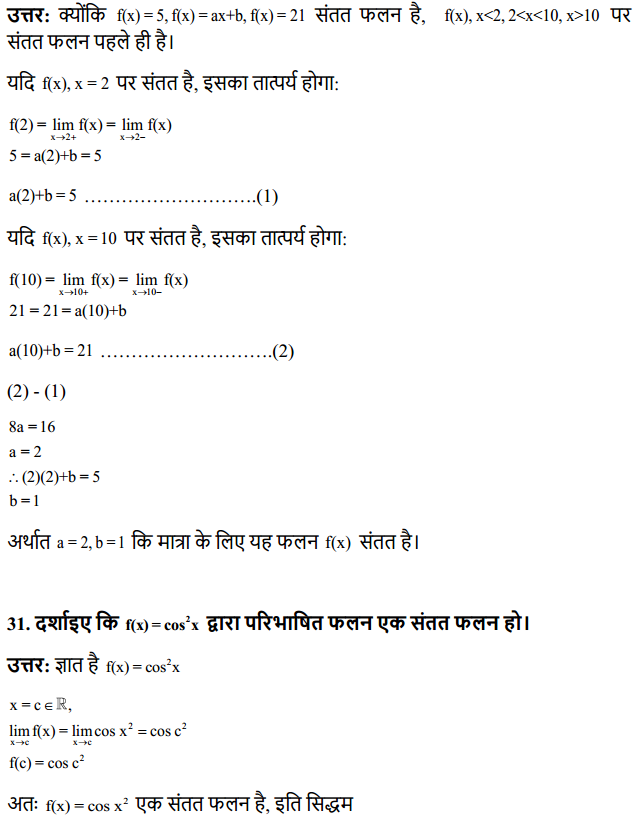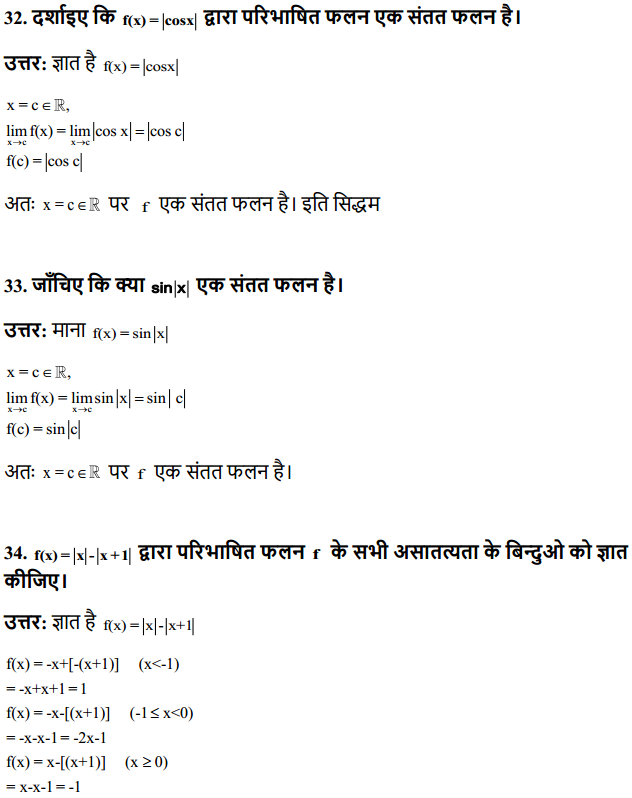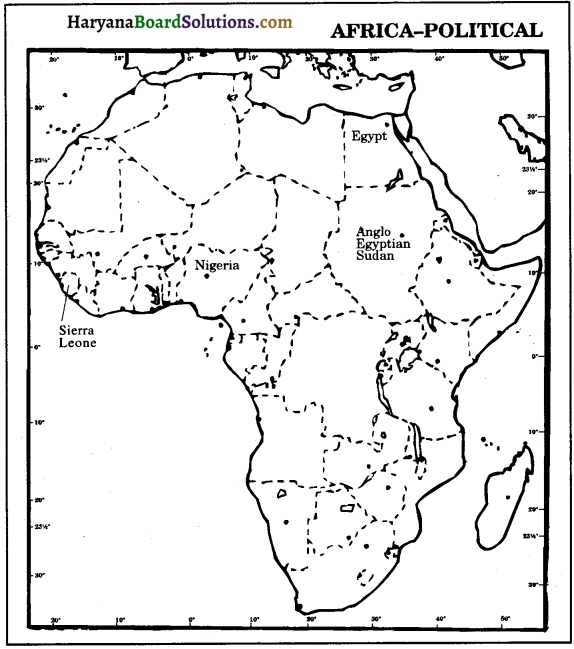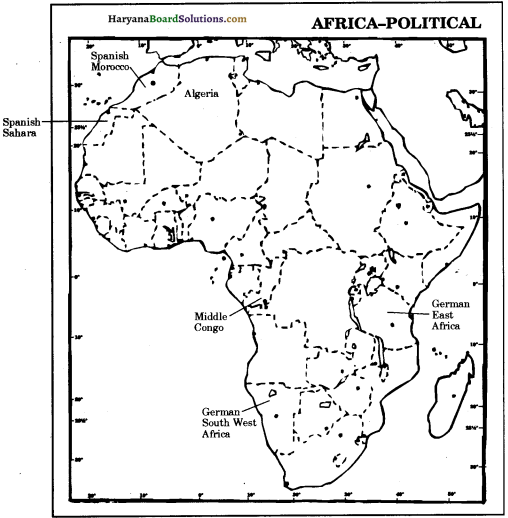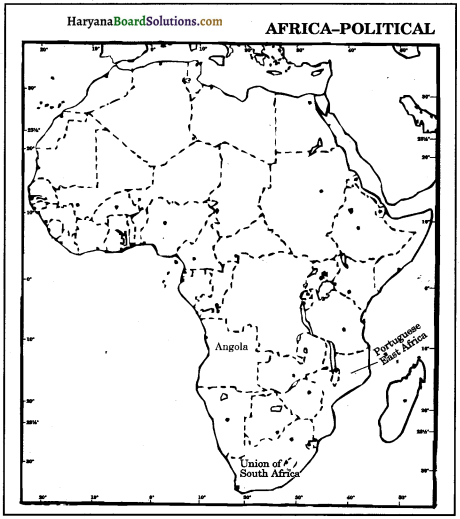HBSE 12th Class English Solutions Flamingo Chapter 8 Going Places
Haryana State Board HBSE 12th Class English Solutions Flamingo Chapter 8 Going Places Textbook Exercise Questions and Answers.
Haryana Board 12th Class English Solutions Flamingo Chapter 8 Going Places
HBSE 12th Class English Going Places Textbook Questions and Answers
Question 1.
Sophie and Jansie were class-mates and friends. What were the differences between them that show up in the story? (सोफी एवं जैन्सी सहपाठी एवं सहेलियाँ थी। उन दोनों के बीच के क्या अन्तर कहानी में नजर आते थे?)
Answer:
Sophie and Jansie are friends and classmates. They would leave school after a few months. Both of them belong to poor families. But there are differences between them. Sophie is a daydreamer. She lives in the world of her fantasies. She builds castles in the air. On the other hand, Janie is a practical girl. She knows her limitations. One day, Sophie tells her that she will start a boutique after leaving school. Janie tells her that it requires a lot of money to start a boutique. Sophie says that she will save the money. Janie tells her that it will take a long time to save that much money.
Sophie says that in the beginning, she will take up the job of a manager. Janie tells her that no one will make her a manager straight away. She is a realist and knows that she and Sophie are earmarked for the biscuit factory. Or they will get a job in a shop. But Sophie goes on dreaming. She says that apart from starting a boutique, she will become an actress. She tells Jansie, that an actress does not have to work full time. So she will have a fashionable shop in the city and also be an actress. Thus we see that there is a lot of difference between Sophie and Jansie. Sophie lives in the world of her dreams. On the other hand, Jansie is a sensible and practical girl.
(सोफी और जैन्सी सहेलियाँ और सहपाठी हैं। कुछ महीनों के बाद वे स्कूल छोड़ देंगे। दोनों ही गरीब परिवारों से सम्बन्ध रखती हैं। मगर दोनों में अन्तर है। सोफी दिन में सपने लेने वाली है। वह अपनी कल्पनाओं के संसार में रहती है। वह हवाई किले बनाती है। दूसरी ओर, जैन्सी व्यावहारिक लड़की है। वह अपनी सीमाएँ जानती है। एक दिन, सोफी उसे कहती है कि स्कूल छोड़ने के बाद वह अपना बुटीक खोलेगी। जैन्सी उसे कहती है कि बुटीक शुरु करने के लिए तो बहुत-सा पैसा चाहिए। सोफी कहती है कि वह पैसा बचाएगी। जैन्सी उसे बताती है इतना पैसा कमाने में तो बहुत समय लग जाएगा। सोफी उसे बताती है कि आरम्भ में, वह मैनेज़र के रूप में काम करेगी। जैन्सी कहती है कि स्कूल छोड़ने के फौरन बाद कोई उसे मैनेजर की नौकरी नहीं देगा। वह एक यथार्थवादी है और जानती है कि वह और सोफी बिस्कुट की फैक्ट्री में काम करने के लिए बनी हैं।
या उन्हें किसी दुकान में काम मिल जाएगा। मगर सोफी दिन में सपने लेती रहती है। वह कहती है कि बुटीक खोलने के अलावा, वह एक अभिनेत्री बनेगी। वह जैन्सी को बताती है कि, एक अभिनेत्री को पूरा समय काम नहीं करना पड़ता। इसलिए वह शहर में एक फैशनेब्ल दुकान भी चलाएगी और अभिनेत्री भी बनेगी। इस प्रकार हम देखते हैं कि सोफी और जैन्सी में बहुत-सा अन्तर है। सोफी अपने सपनों के संसार में रहती है। दूसरी ओर जैन्सी अक्लमंद और व्यावहारिक लड़की है।)
Question 2.
How would you describe the character and temperament of Sophie’s father? (आप सोफी के पिता के स्वभाव एवं चरित्र का वर्णन कैसे करेंगे?) [H.B.S.E. 2017 (Set-C)]
Answer:
This story is centered round Sophie. It tells us about the fantasies of this young girl. Sophie’s father appears for a short while in the story. Yet we can form an opinion about his character. When we first meet him he is “scooping shepherd’s pie into his mouth as hard as he could go”. He has a plumpy face which looks grimy and sweaty. He does not seem soft or sophisticated. On the other hand, he appears to be an authoritarian, somewhat short-tempered persons.
Sophie seems to be afraid of him. He doesn’t believe in his daughter’s wild stories. She fears that he will be angry with her when he comes to know that she has met Danny Casey. Sophie’s father is a sports lover also. He is an ardent fan of the footballer Danny Casey. He seems to be fun-loving also. When the United team wins, he goes to the pub to celebrate it. He knows her daughter well. He knows that she is a daydreamer. That is why he calls her stories the ‘wild stories’ and does not think them to be true. When Geoff tells him that Sophie met Danny Casey, his expression is that of disdain.
(यह कहानी सोफी के गिर्द केन्द्रित है। यह हमें इस युवा लड़की की कल्पनाओं के बारे में बताती है। सोफी का पिता कहानी में थोड़ी देर के लिए आता है। फिर भी हम उसके चरित्र के बारे में अपनी राय बना सकते हैं। जब हम उसे पहली बार मिलते हैं तो वह “पूरी ताकत के साथ शेफर्ड्स पाई को मुँह में डाले जा रहा था।” उसका चेहरा मोटा है जो मैला और पसीने वाला है। वह नर्म या सुसंस्कृत नहीं लगता। इसके विपरीत, वह रोबीला प्रतीत होता है, और काफी हद तक गर्म मिज़ाज वाला लगता है। सोफी उससे डरती हुई प्रतीत होती है। वह अपनी बेटी की काल्पनिक कहानियों में विश्वास नहीं करता। वह डरती है कि जब उसे पता चलेगा कि वह डैनी केसी से मिली है तो वह नाराज होगा।
सोफी का पिता खेल-प्रेमी भी है। वह फुटबॉल खिलाड़ी डैनी केसी का बहुत बड़ा प्रशंसक है। वह विनोदी भी प्रतीत होता है। जब यूनाइटिड टीम जीत जाती है, तो वह इसका जश्न मनाने के लिए शराबखाने में जाता है। वह अपनी बेटी को अच्छी प्रकार से जानता है। वह जानता है कि वह दिन में सपने लेने वाली लड़की है। इसलिए वह उसकी कहानियों को ‘काल्पनिक कहानियाँ’ कहता है और उन्हें सच नहीं समझता। जब ज्योफ उसे बताता है कि सोफी डैनी से मिली थी, तो उसका भाव निंदा वाला होता है।)
![]()
Question 3.
Why did Sophie like her brother Geoff more than any other person? From her perspective, what did he symbolise? (सोफी किसी भी अन्य व्यक्ति की बजाय अपने भाई ज्योफ को अधिक क्यों चाहती थी ? उसके दृष्टिकोण से उसका भाई किस बात का प्रतीक था?)
Answer:
Sophie’s elder brother, Geoff, is an apprentice mechanic. She is very fond of her brother. He travels to his work each to the far side of the city. He is almost grown although he left school only three years ago. Sophie likes him more than any other person in the world. She can open her heart to him. He speaks very little. Sophie feels that when he is not speaking it is as though he is away somewhere, in those places where she has never been. These places hold a special fascination for her. She wants to share those experiences and areas of his life about which she knows nothing.
Sophie has emotional attachment to him. She knows that Geoff is only person who can listen to her ‘wild stories’ without disdain. Her father scoffs at her stories. Sophie wishes that her brother would someday take her with him and they would visit new and explored places. In her imagination Sophie sees herself riding there behind Geoff. She imagines that Geoff is wearing a new, shining black leather dress and she a yellow dress with a kind of cap that flies out behind. There is the sound of applause as people greet her. Geoff symbolizes to her the fulfillment of her dreams.
(सोफी का बड़ा भाई, ज्योफ़ एक नौसिखिया मैकेनिक है। वह अपने भाई को बहुत पसंद करती है। वह अपने काम के लिए शहर के दूसरे कोने तक यात्रा करता है। वह लगभग वयस्क हो गया है यद्यपि उसने स्कूल केवल तीन साल पहले ही छोड़ा है। सोफी संसार में उसे सबसे अधिक प्यार करती है। वह अपना दिल उसके सामने खोल सकती है। वह बहुत कम बोलता है। सोफी महसूस करती है कि जब वह नहीं बोलता, तो ऐसे लगता है कि वह अपने विचारों में दूर कहीं ओर चला गया है। इन स्थानों का सोफी के लिए विशेष महत्त्व है। वह उन अनुभवों और उसके जीवन के उन क्षेत्रों में भाग लेना चाहती है जिसके बारे में वह कुछ नहीं जानती। सोफी का उसके लिए भावनात्मक लगाव है। वह जानती है कि ज्योफ ही एकमात्र ऐसा व्यक्ति है जो उसकी ‘काल्पनिक कहानियों को निंदा के बिना सुनता है। उसका पिता उसकी कहानियों का मज़ाक उड़ाता है।
सोफी कामना करती है कि उसका भाई एक दिन उसे अपने साथ ले जाएगा और वे नए और अनखोजे क्षेत्रों में जाएँगे। अपनी कल्पना में सोफी स्वयं को देखती है कि वह ज्योफ के पीछे (उसकी मोटरसाइकिल पर) सफर कर रही है। वह कल्पना करती है कि ज्योफ ने एक नई, काले चमड़े की पोशाक पहनी है और उसने (सोफी ने) एक पीली पोशाक पहनी है और ऐसी टोपी पहनी है जो पीछे हिलती है। वहाँ पर उसका अभिनन्दन करने के लिए लोगों के स्वागत का शोर भी है। ज्योफ़ उसके लिए उसके सपनों के पूरा होने का प्रतीक है।)
Question 4.
What socio-economic background did Sophie belong to? What are the indicators of her family’s financial status? (सोफी का सम्बन्ध किस सामाजिक-आर्थिक पृष्ठभूमि से था? उसके परिवार के वित्तीय दर्जे के क्या चिहून हैं?)
Answer:
A study of the story ‘Going Places’ reveals the socio-economic background of Sophie and her family. They belong to a lower middle class family. Jansie and Sophie are classmates. Sophie tells her that she wants to start a boutique after leaving school. Jansie scoffs at this idea. She tells her that she will need a lot of money for that. Sophie says that she will become a manager. Jansie says that no one will make a manager straight away. She tells her that perhaps they are earmarked for the biscuit factory. It is also possible that they may get a job in a shop.
The socio-economic condition of Sophie’s family is revealed from the condition of her brother Geoff also. When Sophie goes home she finds her brother tinkering with a motorcycle part. He is an apprentice mechanic. He has to travel to the other part of the city daily. His jacket is shapeless. Even Sophie wishes that he should care more for his clothes. We find that dirty clothes are piled up in a corner. The father goes to the pub on a bicycle. Sophie’s younger brother also knows that his sister is unrealistic. He tells her father, “She thinks money grows on trees, … Dad.” All these things show that Sophie belongs to a poor family.
(‘गोईंग प्लेसिज़’ कहानी सोफी और उसके परिवार की सामाजिक-आर्थिक अवस्था को दर्शाती है। वे एक निम्न मध्यम-वर्ग से सम्बन्ध रखते हैं। जैन्सी और सोफी सहपाठी हैं। सोफी उसे बताती है कि स्कूल छोड़ने के बाद वह एक बुटीक खोलेगी। जैन्सी इस विचार का मज़ाक उड़ाती है। वह उसे बताती है कि उसके लिए उसे बहुत पैसा चाहिए। सोफी कहती है कि वह मैनेज़र बन जाएगी। जैन्सी कहती है कोई भी उसे एकदम मैनेज़र नहीं बना देगा। वह उससे कहती है कि शायद वे बिस्कुट की फैक्ट्री में काम करने के लिए ही बने हैं। यह भी संभव है कि उन्हें किसी दुकान में काम मिल जाए। सोफी के परिवार की सामाजिक-आर्थिक अवस्था उसके भाई ज्योफ़ की हालत से भी नज़र आती है।
जब सोफी घर जाती है तो वह देखती है कि उसका भाई मोटरसाइकिल के एक पुर्जे से छेड़छाड़ कर रहा है। वह एक अण्डर ट्रैनिंग मैकेनिक है। उसे काम के लिए रोज़ शहर के दूसरे भाग तक जाना पड़ता है। उसकी जैकेट आकारहीन है। यहाँ तक कि सोफी भी चाहती है कि वह अपने कपड़ों की अधिक देखभाल करें। हम देखते हैं कि एक कोने में गन्दे कपड़ों का ढेर लगा हुआ है। सोफी का छोटा भाई भी जानता है कि उसकी बहन कल्पनावादी है। वह अपने पिता को बताता है, “वह सोचती है कि पैसा पेड़ों पर उगता है,…… पिताजी”। यह सब बातें दर्शाती हैं कि सोफी एक गरीब परिवार से सम्बन्ध रखती है।)
Think As You Read
Question 1.
Where was it most likely that the two girls would find work after school ? (इसकी सबसे अधिक सम्भावना कहाँ थी कि दोनों लड़कियाँ स्कूल छोड़ने के बाद काम पा लेंगी?)
Answer:
The two girls are Sophie and Jansie. Sophie is a daydreamer. She dreams of starting a boutique after leaving school. But Jansie is a realist. She knows that they belong to poor families. She tells her that they are earmarked for the biscuit factory. It is also possible that they can get some work in a shop.
(दो लड़कियाँ सोफी और जैन्सी हैं। सोफी दिन में सपने लेने वाली है। वह सपने लेती है कि स्कूल छोड़ने के बाद वह अपना बुटीक खोलेगी। मगर जैन्सी यथार्थवादी है। वह जानती है कि वह गरीब परिवारों से है। वह उसे बताती है कि उनका बिस्कुट की फैक्ट्री में काम करना निश्चित है। यह भी संभव है कि उन्हें किसी दुकान में काम मिल जाए।)
Question 2.
What were the options that Sophie was dreaming of? Why does Jansie discourage her from having such dreams? (सोफी किन विकल्पों के बारे में सोच रही थी? जैन्सी ने उसे ऐसे सपने लेने से निरुत्साहित क्यों किया?) or What were Sophie’s dreams about her future ? [H.B.S.E. March, 2019 (Set-D)] (सोफी के सपने भविष्य के बारे में क्या थे?)
Answer:
Sophie belongs to a poor family. But she is a daydreamer. She tells Jansie that after leaving school, she will start a boutique. She tells her that it takes a lot of money to start a boutique. Sophie then says that she will work as a manager, save money and then start a boutique. She will also work as an actress. Jansie is a realist. She knows that a poor girl like Sophie cannot realize these dreams. So she discourages her.
(सोफी एक गरीब परिवार से संबंध रखती है। मगर वह दिन में सपने लेती रहती है। वह जैन्सी को बताती है कि स्कूल छोड़ने के बाद, वह एक बुटीक खोलेगी। जैन्सी उसे कहती है कि बुटीक शुरू करने के लिए तो बहुत-सा पैसा चाहिए। फिर सोफी उसे बताती है कि आरम्भ में वह मैनेजर के रूप में काम करेगी, तब तक जब तक कि वह पर्याप्त पैसा नहीं कमा लेती। वह एक अभिनेत्री भी बनेगी। जैन्सी यर्थाथवादी है। वह जानती है कि सोफी की तरह गरीब लड़की अपने सपनों को पूरा नहीं कर सकती। इसलिए वह उसे निरुत्साहित करती है।)
Question 3.
Why did Sophie wriggle when Geoff told her father that she had met Danny Casey ? (जब ज्योफ ने अपने पिता को बताया कि सोफी डैनी केसी से मिली है तो सोफी क्यों कसमसाई?)
Answer:
Sophie knows that her father considers her a daydreamer. He does not believe her stories. She knows that he will be angry when he gets the news of her meeting with Danny. She tells her brother Geoff about her meeting with Danny Casey. But then Geoff tells his father that she met Danny. At this Sophie wriggles because she fears that her father will be angry.
(सोफी जानती है कि उसका पिता उसे दिन में सपने लेने वाली मानता है। वह उसकी कहानियों में विश्वास नहीं करता। वह जानती है कि जब उसे उसकी डैनी से मुलाकात की खबर मिलेगी तो वह नाराज होगा। वह अपने भाई ज्योफ को डैनी केसी से अपनी मुलाकात के बारे में बताती है। मगर ज्योफ अपने पिता को बता देता है कि वह डैनी से मिली थी। इस पर सोफी कसमसाती है क्योंकि उसे डर है कि उसका पिता उससे नाराज होगा।)
Question 4.
Does Geoff believe what Sophie says about her meeting with Danny Casey? (सोफी ने डैनी केसी से मिलने के बारे में जो कहा, क्या ज्योफ ने उस पर विश्वास कर लिया?) [H.B.S.E. 2019 (Set-D)]
Answer:
Sophie tells her brother Geoff that she met Danny Casey. Geoff does not seem to believe her. He looks around abruptly in disbelief. He says, “It’s never true.” Then he says, “I can’t believe it.” In order to make sure that she has met him, he asks her, “What does he look like?” But he tells this story to his father in order to see whether he believes it
(सोफी अपने भाई ज्योफ को बताती है कि वह डैनी कैसी से मिली थी। ज्योफ उस पर विश्वास करता प्रतीत नहीं होता। वह अविश्वास से एकदम अपने चारों ओर देखता है। वह कहता है, “यह कभी सच नहीं हो सकता।” फिर वह कहता है, “मैं इस पर विश्वास नहीं कर सकता।” यह सुनिश्चित करने के लिए कि वह सचमुच ही उससे मिल चुकी है, वह उससे पूछता है, “वह देखने में कैसा लगता है?” मगर वह इस कहानी को अपने पिता को बता देता है ताकि पता लगे कि क्या इस पर विश्वास करता है या नहीं।)
![]()
Question 5.
Does her father believe her story? (क्या उसके पिता ने उसकी कहानी पर विश्वास किया?)
Answer:
Sophie’s father knows her well. He knows that she is a day dreamer. Although, like Sophie, he is also a great fan of Danny Casey. Even then when Sophie says that she met him, he does not believe her. His expression is that of disdain. He ignores Sophie’s story completely and goes to talk about Tom Finny, who is another great footballer.
(सोफी का पिता उसे अच्छी तरह जानता है। वह जानता है कि वह दिन में सपने लेती है। यद्यपि, सोफी की तरह, वह भी डैनी केसी का बड़ा प्रशंसक है। फिर भी जब सोफी कहती है कि वह उसे मिली थी, तो वह उस पर विश्वास नहीं करता। उसके चेहरे का भाव निंदा का है। वह सोफी की कहानी की पूरी तरह से उपेक्षा कर देता है और टॉम फिन्नी के बारे में बात करना आरम्भ कर देता है, जो कि एक अन्य महान् फुटबॉल खिलाड़ी है।)
Question 6.
How does Sophie include her brother Geoff in her fantasy of her future ? (सोफी अपने भविष्य के बारे में अपनी कल्पना में अपने भाई ज्योफ को किस प्रकार शामिल करती है ?)
Answer:
Sophie’s brother, Geoff speaks very little. Sophie feels that when he is not speaking, it is as though he is away somewhere in his thoughts. These places have a special fascination for Sophie. She wishes her brother would someday take there with him. In her imagination Sophie sees herself riding there behind Geoff. She imagines that he is wearing a new, shining black leather dress and she a yellow dress with a kind of cap that flies out behind. There is the sound of applause as people greet her.
(सोफी का भाई, ज्योफ़ बहुत कम बोलता है। सोफी महसूस करती है कि जब वह बात नहीं कर रहा होता, तो वह अपने विचारों में कहीं दूर होता है। इन स्थानों का सोफी के लिए विशेष आकर्षण है। वह कामना करती है कि उसका भाई किसी दिन उसे अपने साथ वहाँ ले जाएगा। अपनी कल्पना में वह स्वयं को ज्योफ़ के पीछे सवारी करके वहाँ जाती हुई देखती है। वह कल्पना करती है कि उसके भाई ने एक नई, चमकती हुई काले चमड़े की पोशाक पहनी हुई है और उसने (सोफी ने) पीले रंग की पोशाक पहनी है और एक ऐसी टोपी पहनी है जो पीछे हिलती है। वहाँ पर उसका अभिनन्दन करने के लिए लोगों के स्वागत का शोर भी है।)
Question 7.
Which country did Danny Casey play for ? (डनी केसी किस देश के लिए खेलता था?) Ans. Danny Casey played for Ireland. Q.8. Why didn’t Sophie want Jansie to know about her story with Danny? (सोफी ऐसा क्यों नहीं चाहती थी कि जैन्सी को डैनी के बारे में उसकी कहानी का पता चले?)
Answer:
Sophie asks Geoff not to tell anyone about her meeting with Danny. But after a week Jansie and Sophie meet. Jansie tells her that Geoff told Frank that she met Danny Casey. Sophie is surprised because Geoff had promised her not to tell it to any one. She did not want Jansie to know this, because she is afraid that Jansie will let the whole neighbourhood know about it.
(सोफी ज्योफ से कहती है कि वह डैनी से उसकी मुलाकात के बारे में किसी से न कहे। मगर एक सप्ताह के बाद जैन्सी और सोफी मिलते हैं। जैन्सी उसे बताती है कि ज्योफ ने फ्रैन्क को बताया था कि वह डैनी केसी से मिली थी। सोफी हैरान हो जाती है क्योंकि ज्योफ ने उसे वायदा किया था, कि वह यह बात किसी को नहीं बताएगा। वह नहीं चाहती कि जैन्सी को इस बात का पता चले, क्योंकि उसे डर है कि जैन्सी सारे मोहल्ले को यह बात बता देगी।)
Question 9.
Did Sophie really meet Danny Casey ? [H.B.S.E. 2019 (Set-C), 2020 (Set-D)] (क्या सोफी सचमुच डैनी केसी से मिली?)
Answer:
No, she did not really meet Danny Casey. She is a day dreamer. She lives in the world of her fantasy. She is a great fan of Danny Casey. So he often imagines that she has met him. First she tells Geoff about her meeting with Danny. He knows that this is imaginary. Later she again imagines that she meets him in the arcade.
(नहीं, वह सचमुच डैनी केसी से नहीं मिली। वह दिन में सपने लेने वाली है। वह अपनी कल्पना के संसार में रहती है। वह डैनी केसी की बहुत बड़ी प्रशंसक है। इसलिए वह अक्सर कल्पना करती है कि वह उससे मिली है। पहले तो वह ज्योफ को डैनी से अपनी मुलाकात के बारे में बताती है। वह जानता है कि यह तो केवल कल्पना करती है। बाद में वह दुबारा कल्पना करती है कि वह उसे आर्केड में मिली है।)
Question 10.
Which was the only occasion when she got to see Danny Casey in person? (वह एकमात्र अवसर कौन-सा था जब वह डैनी केसी से सचमुच मिली?)
Answer:
Danny Casey is a great footballer. Sophie is one of her fans. She often imagines that she has met Danny. In this story, she imagines to meet him in the arcade. But there is only one occasion when she sees Danny Casey in person. She along with her family, goes to see one of his football matches. Danny’s team wins by two goals to nil. The second goal is scored by Danny Casey. At this Sophie glows with pride.
(डैनी कैसी एक महान फुटबॉल खिलाड़ी है। सोफी उसके प्रशंसकों में से एक है। वह अक्सर कल्पना करती है कि वह डैनी से मिली है। इस कहानी में, वह कल्पना करती है कि वह उसे आर्केड में मिली है। मगर वहाँ केवल एक ही अवसर है जब वह डैनी केसी से व्यक्तिगत रूप से मिली है। वह अपने परिवार के लोगों के साथ, उसका एक फुटबॉल मैच देखने जाती है। डैनी की टीम शून्य के मुकाबले दो गोल से जीत जाती है। दूसरा गोल डैनी केसी करता है। इस पर सोफी गर्व के मारे चमकने लगती है।)
![]()
Talking About The Text
Discuss in pairs:
Question 1.
Sophie’s dreams and disappointments are all in her mind. (H.B.S.E. March, 2018 (Set-B)] (सोफी के सपने और निराशा केवल उसके दिमाग में हैं।)
Or
Do you agree with the way sophie tries to fulfill her dreams? [H.B.S.E. March, 2019 (Set-D)] (क्या आप सोफी के सपनों को पूरा करने की कोशिश व तरीकों से सहमत हैं?)
Or
What impression do you form of sophie’s character from the story “Going Places”? (“गोइंग प्लेस” कहानी से आप सोफी के चरित्र का क्या प्रभाव बनाते हो?) [H.B.S.E. 2020 (Set-C)]
Answer:
Sophie belongs to a lower middle-class family. But she has big dreams in her eyes. She cannot fulfill her big desires because of her poor family background. So she lives in the world of her dreams. In her unconscious mind, she does not like to lead a poor life. So she dreams of rising high in life. She tells Jansie that when she leaves school, she will start a boutique. Then she dreams of becoming the manager of a firm. She also dreams of becoming an actress.
Like all teenagers, she too has her idols and role models. She is a fan of Danny Casey. Her role model is her brother Geoff. Both of them are parts of her dreams. She dreams of meeting Danny. She even waits for him. But he does not come. She dreams of visiting new places with her brother. Thus we see that Sophie’s dreams and disappointments are only in her mind.
(सोफी एक निम्न मध्यम-वर्ग के परिवार से सम्बन्ध रखती है। मगर उसकी आँखों में बड़े सपने हैं। वह अपनी इच्छाओं को अपने गरीब परिवार के कारण पूरा नहीं कर सकती। इसीलिए वह सपनों के संसार में रहती है। अपने अचेतन मन में वह गरीब जीवन नहीं जीना चाहती। इसलिए वह जीवन में ऊँचा उठने के सपने देखती है। वह जैन्सी से कहती है कि जब वह स्कूल छोड़ेगी तो वह अपना बुटीक खोलेगी। फिर वह एक फर्म का मैनेज़र बनने का सपना देखती है। वह एक अभिनेत्री बनने का सपना भी देखती है। सब किशोरियों की तरह उसके भी आदर्श और रोल मॉडल हैं। वह डैनी केसी की प्रशंसक है। उसका रोल मॉडल उसका भाई ज्योफ है। वे दोनों ही उसके सपनों का भाग हैं। वह डैनी से मिलने के सपने देखती हैं। वह उसका इन्तज़ार भी करती है। मगर वह नहीं आता। वह अपने भाई के साथ नए-नए स्थानों पर जाने का सपना भी लेती है। इस प्रकार हम देखते हैं कि सोफी के सपने और उसकी निराशाएँ केवल उसके दिमाग में ही हैं।)
Question 2.
It is natural for teenagers to have unrealistic dreams. What would you say are the benefits and disadvantages of such fantasising? (किशोरों के लिए अवास्तविक सपने लेना स्वाभाविक है। ऐसे सपनों के क्या फायदे एवं नुकसान हैं?)
Answer:
A teenager is at that point of life when he or she is leaving the childhood and entering the world of adults. On the one hand, he has the childhood tendency of aspiring for things or ideals. On the other, there is the harsh world of reality. But teenagers generally do not see the reality. They have their own dreams. They live in the world of fantasy. It is not wrong for teenagers to have unrealistic dreams. For achieving something, one has to aspire for it or to dream for it.
All the great men of the world first dreamed and then worked hard to make their dreams a reality. The young children have their own role models and ideals. They have their own aspirations. Therefore, it is not wrong for teenagers to fantasize. This helps them to work for their ambitions. But when a child is cut off from reality and lives in the dream world only, it is bad. We must never lose sight of the realities of the world.
(एक किशोरावस्था जीवन के उस मोड़ पर होता है जब वह बचपन को छोड़ रहा होता है और वयस्क जीवन में प्रवेश कर रहा होता है। एक तरफ तो उसमें वस्तुओं या आदर्शों की कामना करने की बचपन की आदत होती है। दूसरी ओर, वास्तविकता का कठोर संसार है। मगर किशोर आम तौर पर इस वास्तविक्ता को नहीं देखते। उनके अपने सपने होते हैं। वे कल्पनाओं के संसार में रहते हैं। किशोरों के लिए अवास्तविक सपने देखना गलत बात नहीं है।
किसी चीज़ को पाने के लिए पहले उसकी कामना करनी पड़ती है या उसका सपना लेना पड़ता है। संसार के सब महान् लोगों ने पहले सपने देखे और फिर उन सपनों को पूरा करने के लिए मेहनत की। युवा बच्चों के अपने रोल मॉडल और आदर्श होते हैं। उनकी अपनी कामनाएँ होती हैं। इसलिए किशोरों के लिए कल्पनाएँ करना गलत नहीं है। यह बात उन्हें अपनी महत्वाकांक्षाओं के लिए मेहनत करना सिखाता है। मगर जब कोई बच्चा वास्तविक्ता से हट जाता है और केवल सपनों के संसार में रहता है, तो यह बुरी बात है। हमें संसार की वास्तविकताओं से मुँह नहीं मोड़ना चाहिए।)
Working With Words
Notice the following expressions. The highlighted words are not used in a literal sense. Explain what they mean.
Words had to be prized out of him like stones out of a ground.
Sophie felt a tightening in her throat.
If he keeps his head on his shoulders.
On Saturday they made their weekly pilgrimage to the United.
She saw … him ghost past the lumbering defenders.
Answer:
Words had to be prized out of him like stones out of a ground: Geoff spoke very little. So one had to make efforts to draw words out of his mouth just as great effort is required to dig stones out of a ground.
Sophie felt a tightening in her throat: It means that Sophie felt uneasy and suffocated.
If he keeps his head on his shoulders: means that if he maintains his balance of mind.
On Saturday they made their weekly pilgrimage to the United: A pilgrimage is a voyage to a holy place. It means that they went to see the football match every week as if they were visiting a holy place.
She saw ……. him ghost past the lumbering defenders: It means that she saw that Danny moved past in the defenders with great speed.
Noticing Form
Notice the highlighted words in the following sentences :
1. “When I leave”, Sophie said, coming home from school, “I’m going to have a boutique.”
2. Jansie, linking arms with her along the street, looked doubtful.
3. “I’ll find it,” Sophie said, staring far down the street.
4. Jansie, knowing they were both earmarked for the biscuit factory, became melancholy.
5. And she turned in through the open street door leaving Jansie standing in the rain.
When we add “ing” to a verb we get the present participle form. The present participle form is generally used along with forms of “be’, (is, was, are, were, am) to indicate the present continuous tense as in “Sophie was coming home from school.”
We can use the present participle by itself without the helping verb, when we wish to indicate that an action is happening at the same time as another.
In example 1, Sophie “said” something. “Said,” here, is the main action.
What Sophie was doing while she was “saying” is indicated by “coming home from school.” So we get the information of two actions happening at the same time. We convey the information in one sentence instead of two.
Analyze the other examples in the same way.
Pick out five other sentences from the story in which present participles are used in this sense.
Answer:
1. “Dad?” said little Derek, hanging on the back of his father’s chair.
2. She walked along the canal, seeing him come …..
3. She was conscious of a vast world out there waiting for her and she knew ….
4. She saw herself riding behind Geoff.
5. But the last thing I need is queues of people round our house asking him, “What’s all this about Danny Casey ?”
![]()
Thinking About Language
Notice these words in the story.
“chuffed,” meaning delighted or very pleased
“nosey,” meaning inquisitive
“gawky”, meaning awkward, ungainly
These are words that are used in an informal way in colloquial speech. Make a list of ten other words of this kind.
Answer:
dad – father,
boutique – a shop selling beautiful garments
slam – shut noisily
scooping – picking up something with a spoon
muttered – grumbled
pub – a drinking house
jeered – taunted
damn – go to hell ghost
past – move unseen
huh – expression showing disagreement.
Writing
Think of a person who you would like to have as your role model. Write down the points to be discussed or questions to be asked if you were asked to interview that person on a television show.
Answer:
For self-attempt, with the help of the teacher.
Things To Do
Look for other stories or movies where this theme of hero worship and fantasizing about film or sports icons finds a place.
Answer:
For self-attempt, with the help of the teacher.
HBSE 12th Class English The Interview Important Questions and Answers
Short Answer Type Questions
Answer the following questions in about 20-25 words :
Question 1.
What does Sophie tell Jansie about her plan after leaving school? What is Jansie’s reaction? (सोफी जैन्सी को स्कूल छोड़ने के बाद की अपनी योजना के बारे में क्या बताती है? जैन्सी की प्रतिक्रिया क्या है?)
Answer:
Sophie and Jansie are schoolmates. Sophie lives in her dreams. One day they are coming home from school. Sophie tells Jansie that after leaving school, she will start a boutique. Jansie tells her that it takes a lot of money to start a boutique. But Sophie says that she will save money for that.
(सोफी और जैन्सी सहपाठी हैं। सोफी अपने सपनों में रहती है। एक दिन वे स्कूल से घर आ रही हैं। सोफी जैन्सी को बताती है कि स्कूल छोड़ने के बाद, वह एक बुटीक खोलेगी। जैन्सी उसे कहती है कि बुटीक शुरु करने के लिए तो बहुत-सा पैसा चाहिए। मगर सोफी कहती है कि वह उसके लिए पैसा बचाएगी।)
Question 2.
Why did Sophie wish to become an actress ? [H.B.S.E. 2019 (Set-A)] (सोफी एक नायिका क्यों बनना चाहती थी?)
Answer:
Sophie was dreaming of opening a boutique after school but her friend Jansie told her that she had not enough money to open a boutique. Then she said that she would become a manager. At this Jansie told her that nobody would make her a manager just after school. At this she said that she would become an actress because not much money is required to become an actor.
(सोफी स्कूल छोड़ने के बाद एक बुटीक खोलने के सपने लेती थी। लेकिन उसके दोस्त जैन्सी ने उसे बताया कि एक बुटीक खोलने के लिए उसे बहुत सारे पैसे चाहिए। तब उसने कहा कि वह मैनेजर के रूप में काम करेगी। इस पर जैन्सी ने कहा कि कोई भी स्कूल छोड़ने के तुरन्त बाद मैनेजर नहीं बना सकता। इस पर सोफी ने कहा कि फिर वह एक नायिका बनेगी। क्योंकि एक नायिका बनने के लिए बहुत अधिक पैसों की जरूरत नहीं होती।)
Question 3.
How does Jansie’s talk to Sophie reveal that she is a realist? (सोफी के साथ हुई जैन्सी की बात से कैसे पता चलता है कि वह एक यथार्थवादी है?)
Answer:
Sophie often day dreams about her future. But her friend Jansie is a realist. She does not live in the world of dreams. She tells Sophie that they were most likely to work in a biscuit factory after school. When they reach Sophie’s street, Jansie tells her to be practical in thinking. She will not get enough for shop work and her father will never allow it.
(सोफी अपने भविष्य के बारे में अक्सर दिन में सपने लेती रहती है। मगर उसकी सहेली जैन्सी वास्तविकतावादी है। वह सपनों के संसार में नहीं रहती। वह कहती है कि स्कूल छोड़ने के बाद उनकी किसी बिस्कुट फैक्ट्री में काम करने की संभावना है। जब वे सोफी की गली में पहुँचती हैं, तो जैन्सी उसे कहती है कि वह अपनी सोच में व्यावहारिक बने। उसे दुकान में काम करने के लिए अधिक पैसा नहीं मिलेगा और उसके पिता ऐसा कभी होने भी नहीं देंगे।)
![]()
Question 4.
How does Sophie’s younger brother and her mother scoff at her day-dreamings? (सोफी का छोटा भाई एवं उसकी माता उसके दिन के स्वप्नों का कैसे मजाक उड़ाते हैं?)
Answer:
Sophie reaches home. Her father, mother, and her younger brother Derek are in the room. She tells them that if she ever gets money, she will buy a good home for them. Derek says that money does not grow on trees. Her mother sighs.
(सोफी घर पहुँचती है। उसका पिता, माता और उसका छोटा भाई डेरेक कमरे में है। वह उन्हें बताती है कि अगर उसे कहीं से पैसे मिल जाएँगे, तो वह उनके लिए एक अच्छा घर खरीदेगी। डेरेक कहता है कि पैसा पेड़ों पर नहीं उगता। उसकी माँ आह भरती है।)
Question 5.
What does this story tell us about Sophie’s brother, Geoff? [H.B.S.E. 2017 (Set-B)] (यह कहानी हमें सोफी के भाई, ज्योफ के बारे में क्या बताती है?)
Answer:
Sophie goes to look for her brother Geoff. He is an apprentice mechanic. Sophie finds her tinkering with a motorcycle part. He travels to his work daily to the far side of the city. He speaks very little. Sophie feels that when he is not speaking, it is as though he is away somewhere in his thoughts.
(सोफी अपने भाई ज्योफ़ के पास जाती है। वह एक सहायक मैकेनिक है। सोफी देखती है कि वह मोटरसाइकिल के एक भाग से छेड़छाड़ कर रहा है। वह रोज़ काम जाने के लिए शहर के दूसरे छोर तक यात्रा करता है। वह बहुत कम बोलता है। सोफी महसूस करती है कि जब वह नहीं बोलता तो ऐसे लगता है कि वह अपने विचारों में दूर कहीं ओर चला गया है।)
Question 6.
How is Geoff a part of Sophie’s day dreams? [H.B.S.E. 2017 (Set-A)] (ज्योफ किस प्रकार सोफी के दिन के स्वप्नों का भाग है?)
Answer:
Geoff speaks very little. Sophie feels that when he is not speaking it as though he is away somewhere in his thoughts. Sophie wishes her brother would some day take to those places with him. In her imagination Sophie sees herself riding there behind Geoff. She imagines that he is wearing a new, shining black leather dress and she (Sophie) a yellow dress with a kind of cap that flies out behind.
(ज्योफ़ बहुत कम बोलता है। सोफी महसूस करती है कि जब वह नही बोलता तो ऐसे लगता है कि वह अपने विचारों में दूर कहीं ओर चला गया है। सोफी कामना करती है कि उसका भाई किसी दिन उसे अपने साथ वहाँ ले जाएगा। अपनी कल्पना में वह स्वयं को ज्योफ के पीछे सवारी करके वहाँ जाती हुई देखती है। वह कल्पना करती है कि उसने एक नई, चमकती हुई काले चमड़े की पोशाक पहनी हुई है और उसने (सोफी ने) पीले रंग की पोशाक पहनी है और एक ऐसी टोपी पहनी है जो पीछे से हिलती है।)
Question 7.
What did Sophie tell Geof about Danney Cassey ? (सोफी ज्योफ को डैनी केसी के बारे में क्या बताती है?) [H.B.S.E. 2019 (Set-B)]
Answer:
Sophie tells Geoff that she met Danny Casey in the arcade. Geoff is aware of Sophie’s habit of daydreaming. So he replies that it is not true and he does not believe it. Sophie tells him that she was looking at the clothes in Royce’s window and Danny Casey stood beside her. Still not sure, Geoff asks her how Danny looked like. Sophie tells him that Danny had green and gentle eyes and he was not so tall.
(सोफी ज्योफ़ को बताती है कि आर्केड में वह डैनी केसी से मिली थी। ज्योफ़ को सोफी की दिन में सपने लेने की आदत का पता है। इसलिए वह उत्तर देता है कि यह सच नहीं है और वह इस पर विश्वास नहीं करता। सोफी उसे बताती है कि वह रॉयस की दुकान की शो-केस में कपड़े देख रही थी और डैनी केसी उसके पास खड़ा था। ज्योफ को अभी भी विश्वास नहीं होता, और वह पूछता है कि डैनी देखने में कैसा लग रहा था। सोफी उसे बताती है कि डैनी की आँखें हरी और विनम्र हैं और वह अधिक लम्बा नहीं है।)
Question 8.
How does Sophie’s father react when Geoff tells him about Sophie’s meeting with Danny? (जब ज्योफ सोफी के पिता को बताता है कि सोफी डैनी से मिली थी तो उसकी क्या प्रतिक्रिया हुई?)
Answer:
Geoff tells his father that Sophie met Danny Casey. Like Geoff, his father also does not believe her. Although Geoff tells him that it is true, yet her father is not sure if she really met Danny.
(ज्योफ अपने पिता को बताता है कि सोफी की मुलाकात डैनी केसी से हुई थी। ज्योफ की तरह, उसका पिता भी उसकी बात पर विश्वास नहीं करता। यद्यपि ज्योफ़ उसे बताता है कि यह सच है मगर उसके पिता को विश्वास नहीं है वह सचमुच डैनी से मिली है।)
Question 9.
What does Sophie imagine about her meeting with Danny Casey? (डनी केसी से अपनी मुलाकात के बारे में सोफी क्या कल्पना करती है?)
Answer:
Danny Casey was a great footballer. He played football for Ireland. Sophie is a great fan of him. So she often imagines that she has met him. In this story she imagines to meet him in the arcade. She asks him for autograph.
(डैनी केसी एक महान फुटबॉल खिलाड़ी था। वह आयरलैंड के लिए फुटबॉल खेलता था। सोफी उसकी एक बड़ी प्रशंसक है। इसलिए वह हमेशा से कल्पना में रहती है कि वह उससे मिल चुकी है। इस कहानी में वह कल्पना करती है कि वह उसे आर्केड में मिलती है। वह उससे ऑटोग्राफ देने के लिए कहती है।)
Question 10.
What was the autograph riddle? Could it be solved? [H.B.S.E. March, 2019 (Set-A)] (ऑटोग्राफ पहेली क्या थी? क्या इसे हल किया जा सकता है?)
Answer:
Sophie tells Geoff that she met Danny Casey in an arcade. She asked him if he was Danny and he looked surprised. Then she asked him for an autograph for little Derek. But neither of them had any paper or pen. However, he asked Sophie to meet him the next week and he would give her an autograph then. But this autograph riddle could not be solved.
(सोफी ज्योफ को बताती है कि आर्केड में उसे डैनी केसी मिला था। उसने उससे पूछा था कि क्या वह डैनी है और वह हैरान प्रतीत हुआ था। तब उसने उससे छोटे डेरेक के लिए ऑटोग्राफ माँगा। मगर उन दोनों में से किसी के पास भी पेन या कागज़ नहीं था। लेकिन उसने सोफी से कहा कि वह उसे अगले सप्ताह मिले और वह उसे तब ऑटोग्राफ देगा। परन्तु यह ऑटोग्राफ पहेली हल नहीं की जा सकती थी।)
Question 11.
Describe the visit of Sophie’s family to the stadium to watch Danny’ play. (डैनी के खेल को देखने के लिए सोफी के परिवार का स्टेडियम जाने का वर्णन करो।) Or What happend when Sophie and her family went to watch the match on Saturday? (क्या हुआ जब सोफी और उसके घर वाले शनिवार को मैच देखने गए?) [H.B.S.E. March, 2019 (Set-C)]
Answer:
All the members of Sophie’s family are great fans of Danny. One Saturday they go to watch the United team play. Sophie, her father and little Derek go down near the goal. Geoff, as always, goes higher up with his friends. United wins by two goals. The second goal is scored by Danny. Sophie glows with pride and Geoff is very excited.
(सोफी के परिवार के सभी सदस्य डैनी के बहुत बड़े प्रशंसक हैं। एक शनिवार वे यूनाइटिड टीम का खेल देखने जाते हैं। सोफी, उसका पिता और छोटा डेरेक गोल के पास जाते हैं। ज्योफ़, सदा की तरह, अपने दोस्तों के साथ स्टेडियम में ऊपर जाता है। यूनाइटिड की टीम दो गोल से जीत जाती है। दूसरा गोल डैनी करता है। सोफी गर्व से चमकने लगती है और ज्योफ बहुत उत्तेजित हो जाता है।)
Question 12.
How would you describe the character and temperament of Sophie’s father ? । (आप सोफी के पिता के चरित्र और स्वभाव का वर्णन कैसे करेंगे?) [H.B.S.E. March, 2020 (Set-A)]
Answer:
Sophie’s father is a man with plump face which looks grimy and sweaty. He does not seem soft or sophisticated. On the other hand, he appears to be an authoritarian, some what short-tempered person. Sophie seems to be afraid of him. He doesn’t believe in his daughter’s wild stories. He is a sports lover also. He is an ardent fan of the footballer Danny Casey.
(सोफी का पिता एक गोल-मटोल चेहरे वाला व्यक्ति है, जो कि बहुत मैला और पसीने से तर दिखता है। वह नरम या दुनियादारी निभाने वाला नहीं लगता। दूसरी ओर, वह एक अधिनायकवादी प्रतीत होता है, जो कि थोड़ा गुस्से वाला व्यक्ति है। सोफी उससे डरी हुई प्रतीत होती है। वह अपनी बेटी की जंगली कहानियों पर विश्वास नहीं करता। वह एक खेल-प्रेमी भी है। वह फुटबॉलर डैनी केसी का कट्टर प्रशंसक है।)
Question 13.
Why does Sophie go to the canal? (सोफी नहर पर क्यों जाती है?)
Answer:
Danny asked Sophie to wait for him in order to get his autograph. So after dark Sophie goes to the canal. She walks along a sheltered path. When she was a child, she often played at this place. There is a wooden bench where lovers sometimes come. Sophie sits down and waits for Danny.
(डैनी सोफी को कहता है कि अगर उसने ऑटोग्राफ लेना है तो वह उसका इन्तज़ार करे। इसलिए अन्धेरा होने पर सोफी नहर पर जाती है। वह छायादार मार्ग पर चलती है। जब वह बच्ची थी, तो वह अक्सर उस रास्ते पर खेलती थी। वहाँ पर लकड़ी का एक बैन्च है जहाँ पर प्रेमी अक्सर आते हैं। सोफी बैठ जाती है और डैनी का इन्तज़ार करती है।)
![]()
Question 14.
What does Sophie imagine when she goes to the canal? (जब सोफी नहर पर जाती है तो वह क्या कल्पना करती है?)
Answer:
Sophie goes to the canal and waits for Danny. She is again lost in day dreams. She imagines him coming out of the shadows. She imagines her own consequent excitement.
(सोफी नहर पर जाती है और डैनी का इन्तज़ार करती है। वह फिर दिन के सपनों में खो जाती है। वह कल्पना करती है कि वह परछाइयों के बीच में से आ रहा है। वह इसके परिणामस्वरूप होने वाली उत्तेजना की भी कल्पना करती है।)
Question 15.
Does Danny meet Sophie at the canal? (क्या डैनी नहर पर सोफी से मिलता है?)
Answer:
Sophie goes to the canal and waits for Danny. But there is no sign of his coming. She remembers Geoff saying he would never come. Danny does not come there and she feels sad and hopeless. She thinks that now she will never be able to show her family members that they were wrong to doubt her. She wonders how she will face Geoff.
(सोफी नहर पर जाती है और डैनी का इन्तज़ार करती है। मगर उसके आने का कोई अंदेशा नहीं है। उसे ज्योफ का यह कथन याद आता है कि वह कभी नहीं आएगा। डैनी वहाँ नहीं आता और वह उदास और आशाहीन हो जाती है। वह सोचती है कि अब वह कभी भी अपने परिवार के लोगों को यह साबित करके नहीं दिखा सकेगी कि उस पर संदेह करना उनकी गलती थी। उसे हैरानी होती है कि वह ज्योफ़ का सामना कैसे करेगी।)
Question 16.
What does Sophie dream of ? (सोफी क्या स्वप्न लेती है?)
Answer:
Sophie is a day dreamer. She dreams of starting a boutique after leaving school. She also dreams of working as an actress. (सोफी दिन में सपने देखती है। वह स्कूल छोड़ने के बाद एक बुटीक खोलने का सपना देखती है। वह एक कलाकार के रूप में भी काम करने का सपना देखती है।)
Question 17.
What shows that Sophie belonged to a poor family ? [H.B.S.E. 2020 (Set-B)] (क्या बात दिखाती है कि सोफी एक गरीब परिवार से संबंधित थी?)
Answer:
Sophie was a teenager. She belonged to a poor family. There are many indicators that show it. She told Jansie that after leaving school, she would start a boutique. She told her that it took a lot of money to start a boutique. Sophie then said that she would work as a manager, save money and then start a boutique. She would also work as a actress to earn money.
(सोफी एक किशोरी थी। वह एक गरीब परिवार से संबंधित थी। कई संकेत हैं जो इस बात को दिखाते हैं। उसने जैन्सी से कहा कि स्कूल छोड़ने के बाद वह एक बुटीक शुरू करेगी। उसने उसे बताया कि बुटीक शुरू करने में बहुत पैसे लगते हैं। तब सोफी ने कहा कि वह एक प्रबंधक के रूप में काम करेगी, पैसे बचाएगी और फिर एक बुटीक शुरू करेगी। वह पैसे कमाने के लिए एक अभिनेत्री के रूप में भी काम करेगी।)
Question 18.
How is Geoff different from Sophie? (ज्योफ सोफी से किस तरह भिन्न है?)
Or
Why did Sophie like her brother Geoff more than any other person? [H.B.S.E. March, 2018 (Set-A)] (सोफी को अन्य लोगों की अपेक्षा अपना भाई ज्योफ अधिक पसंद क्यों है?)
Answer:
Geoff is Sophie’s elder brother. He is an apprentice mechanic. He is totally different from his sister Sophie who is a day-dreamer. She is very fond of her brother. He speaks very little. Sophie thinks that she can speak her heart out to him. He symbolises to her the fulfilment of her dreams.
(ज्योफ़ सोफी का बड़ा भाई है। वह एक नौसिखिया मैकेनिक है। वह अपनी बहन सोफी से बिल्कुल भिन्न है जो कि दिन में सपने देखती रहती है। वह अपने भाई से बहुत प्यार करती है। वह बहुत कम बोलता है। सोफी सोचती है कि वह अपने दिल की बात उससे कह सकती है। वह सोचती है कि उसके सपने अपने भाई के माध्यम से पूरे हो सकते हैं।)
![]()
Long Answer Type Questions
Answer the following questions in about 80 words
Question 1.
Describe in brief the conversation between Sophie and Jansie when they are coming home from the school. (सोफी और जैन्सी के उस वार्तालाप को संक्षिप्त में बताइए जब वे स्कूल से घर आ रही हैं।)
Answer:
Sophie and Jansie are schoolmates. They belong to poor families. But Sophie has dreams in her eyes. She has high aspirations. She lives in the world of her dreams. One day she is coming home from school with her friend Jansie. Sophie tells Jansie that after leaving school, she will start a boutique. Jansie tells her that it takes a lot of money to start a boutique. But Sophie says that she will save money that. Jansie tells her that it takes a lot of time to save that much money.
Sophie says that to begin with she will work as a manager, ti has earned enough money. Jansie tells her that nobody will make her a manager just after leaving the school. Now Sophie says that she will have the most beautiful shop in the city. But her friend Jansie is a realist. She does not live in the world of dreams. She tells Sophie that they were most likely to work in a biscuit factory after school. When they reach Sophie’s street, Jansie tells her to be practical in thinking. She will not get enough for shop work and her father will never allow it. Then Sophie says that she will become an actress, as there is much money in actress. She will run a boutique also as actresses do not have to work full time.
(सोफी और जैन्सी सहपाठी हैं। वे गरीब परिवारों की लड़कियाँ हैं। मगर सोफी की आँखों में सपने हैं। उसकी ऊँची महत्वाकांक्षाएँ हैं। वह अपने सपनों के संसार में रहती है। एक दिन वह स्कूल से अपनी सहेली जैन्सी के साथ आ रही है। सोफी जैन्सी को बताती है कि स्कूल छोड़ने के बाद, वह एक बुटीक खोलेगी। जैन्सी उसे कहती है कि बुटीक शुरु करने के लिए तो बहुत-सा पैसा चाहिए। मगर सोफी कहती है कि वह इसके लिए पैसे जोड़ेगी। मगर जैन्सी उसे बताती है कि इतना अधिक धन बचाने के लिए बहुत अधिक समय लगेगा। सोफी उसे बताती है कि आरम्भ में मैनेज़र के रूप में काम करेगी, जब तक कि वह पर्याप्त पैसा नहीं कमा लेती।
जैन्सी उसे कहती कि स्कूल छोड़ने के फौरन बाद कोई उसे मैनेजर की नौकरी नहीं देगा। अब सोफी उसे कहती है कि शहर में उसकी दुकान सबसे शानदार होगी। मगर उसकी सहेली जैन्सी यथार्थवादी है। वह सपनों के संसार में नहीं रहती। वह सोफी को कहती है कि स्कूल छोड़ने के बाद उनकी किसी बिस्कुट फैक्ट्री में काम करने की संभावना है। जब वे सोफी की गली में पहुँचती हैं, तो जैन्सी उसे कहती है कि वह अपनी सोच में व्यावहारिक बने। उसे दुकान में काम करने के लिए अधिक पैसा नहीं मिलेगा और उसके पिता ऐसा कभी होने भी नहीं देंगे। तब सोफी कहती है कि वह एक अभिनेत्री बनेगी, क्योंकि इसमें बहुत पैसा है। वह बुटीक भी चलाएगी क्योंकि अभिनेत्री को पूरा समय काम नहीं करना पड़ता।)
Question 2.
How do Derek and his mother react to Sophie’s aspirations? How does she fantasise about her brother, Geoff? (डेरेक एवं उसकी माता सोफी की महत्त्वाकांक्षाओं के बारे में क्या प्रतिक्रिया देते हैं ? वह अपने भाई ज्योफ के बारे में क्या कल्पना करती है?)
Answer:
Sophie reaches home. Her father, mother and her younger brother Derek are in the room. She tells them that if she ever gets money, she will buy a good home for them. Derek says that money does not grow on trees. Her mother sighs. Then Sophie goes to look for her brother Geoff. He is an apprentice mechanic. Sophie finds her tinkering with a motorcycle part. He travels to his work daily to the far side of the city.
He speaks very little. Sophie feels that when he is not speaking, it is as though he is away somewhere in his thoughts. These places have a special fascination for Sophie as they are unknown to her and are out of her reach. She thinks that perhaps there are also exotic and interesting people about whom Geoff never tells her. She wishes her brother would some day take there with him. In her imagination Sophie sees herself riding there behind Geoff. She imagines that her brother is wearing a new, shining black leather dress and she a yellow dress with a kind of cap that flies out behind. There was the sound of applause as people greet her.
(सोफी घर पहुँचती है। उसका पिता, माता और उसका छोटा भाई डेरेक कमरे में हैं। वह उन्हें बताती है कि अगर उसे कहीं से पैसे मिल जाएँगे तो वह उनके लिए एक अच्छा घर खरीदेगी। डेरेक कहता है कि पैसा पेड़ों पर नहीं उगता। उसकी माँ आह भरती है। फिर सोफी अपने भाई ज्योफ़ के पास जाती है। वह एक सहायक मैकेनिक है। सोफी देखती है कि वह मोटरसाइकिल के एक भाग से छेड़छाड़ कर रहा है। वह रोज़ काम पर जाने के लिए शहर के दूसरे छोर तक यात्रा करता है। वह बहुत कम बोलता है। सोफी महसूस करती है कि जब वह नहीं बोलता तो ऐसे लगता है कि वह अपने विचारों में दूर कहीं ओर चला गया है।
इन स्थानों का सोफी के लिए विशेष महत्त्व है, क्योंकि ये उसके लिए अनजान हैं और उसकी पहुंच से बाहर हैं। वह सोचती है कि शायद वहाँ पर विदेशी और रोचक लोग हैं जिनके बारे में ज्योफ़ उसे कभी नहीं बताता। वह कामना करती है कि उसका भाई किसी दिन उसे अपने साथ वहाँ ले जाएगा। अपनी कल्पना में स्वयं को ज्योफ के पीछे सवारी करके वहाँ जाते देखती है। वह कल्पना करती है कि उसके भाई ने एक नई चमकती हुई काले चमड़े की पोशाक पहनी हुई है और उसने (सोफी ने) पीले रंग की पोशाक पहनी है और एक ऐसी टोपी पहनी है जो पीछे हिलती है। वहाँ पर उसका अभिनन्दन करने के लिए लोगों के स्वागत का शोर भी था।)
Question 3.
What does Sophie tell Geoff about her meeting with Danny Casey? Does her father believe her? (सोफी डैनी केसी से अपनी मुलाकात के बारे में ज्योफ को क्या बताती है? क्या उसका पिता उस पर विश्वास करता है?)
Answer:
Sophie finds that Geoff has an oily motorcycle part in his hand and is frowning at it. Sophie tells him that she met Danny Casey in the arcade. Geoff is aware of Sophie’s habit of day dreaming. So he replies that it is not true and he does not believe it. Sophie tells him that she was looking at the clothes in Royce’s window and Danny Casey stood beside her. Still not sure, Geoff asks her how Danny looked like. Sophie tells him that Danny had green and gentle eyes and he was not so tall. Their father comes and Geoff tells him that Sophie met Danny Casey. Her father also does not believe her. Although Geoff tells him that it is true, yet her father is not sure if she really met Danny. Danny Casey is an outstanding Irish player.
He is immensely liked by Sophie’s family. Now Sophie tells her father that Danny told her that he is going to buy a shop. But her father says that it was another of her wild stories. Sophie continues telling Geoff about her meeting with Danny Casey. She asked him if he was Danny and he looked surprised. Then she asked him for an autograph for little Derek. But neither of them had any paper or pen. However, he asked Sophie to meet him the next week and he would give her an autograph then. Sophie asks Geoff not to tell anyone about her meeting with Danny.
(सोफी देखती है कि ज्योफ के हाथ में मोटर-साइकिल का एक तेलयुक्त भाग है और वह इसे गुस्से से देख रहा है। सोफी उसे बताती है कि आर्केड में उसे डैनी केसी मिला था। ज्योफ को सोफी की दिन में सपने लेने की आदत का पता है। इसलिए वह उत्तर देता है कि यह सच नहीं है और वह इस पर विश्वास नहीं करता। सोफी उसे बताती है कि वह रॉयस की दुकान की शो-केस में कपड़े देख रही थी और डैनी केसी उसके पास खड़ा था। ज्योफ को अभी भी विश्वास नहीं होता, और वह पूछता है कि डैनी देखने में कैसा लग रहा था। सोफी उसे बताती है कि डैनी की आँखें हरी और विनम्र हैं और वह अधिक लम्बा नहीं है। उनका पिता आता है और ज्योफ उसे बताता है कि सोफी डैनी से मिली थी। उसके पिता भी उसका विश्वास नहीं करते। ज्योफ उसे बताता है कि यह सच है मगर उसका पिता को विश्वास नहीं है वह सचमुच डैनी से मिली है।
डैनी केसी एक विलक्षण आइरिश खिलाड़ी है। सोफी का परिवार उसे बहुत अधिक चाहता है। अब सोफी अपने पिता को बताती है कि डैनी ने उसे बताया था कि वह एक दुकान खरीदने जा रहा है। मगर उसका पिता कहता है कि यह उसकी एक और काल्पनिक कहानी है। सोफी ज्योफ को डैनी केसी से अपनी मुलाकात के बारे में बताना जारी रखती है। उसने उससे पूछा था कि क्या वह डैनी है और वह हैरान प्रतीत हुआ था। तब उसने उससे ऑटोग्राफ माँगा। मगर उन दोनों में से किसी के पास भी पेन या कागज नहीं था। लेकिन, उसने सोफी से कहा कि वह उसे अगले सप्ताह मिले और वह उसे तब ऑटोग्राफ देगा। सोफी ज्योफ से कहती है कि वह किसी को उसकी डैनी से हुई मुलाकात की बारे में न बताए।)
![]()
Question 4.
Describe in brief, Sophie’s day dreaming about Danny Casey. (सोफी के डैनी केसी के बारे में दिव्य स्वप्न को संक्षेप में बताइए।)
Answer:
Sophie goes to the canal in order to meet Danny. She sits down and waits for Danny. She is again lost in day dreams. She imagines him coming out of the shadows. She imagines her own consequent excitement. Then she comes out of her dreaming and watches for him. But there is no sign of his coming. She remembers Geoff saying he would never come. Danny does not come there and she feels sad and hopeless. She thinks that now she will never be able to show her family members that they were wrong to doubt her. Coming through the arcade she again imagines that Danny is outside Royce’s. She says, “Excuse me, but aren’t you Danny Casey?” He turns and says that he is.
Sophie tells him that she, along with her father, brothers watch him play every week and they think him to be a great player. Then Sophie asked him for an autograph. His eyes are on the same level as her own. He smiles so shyly, exposing teeth with gaps between. His eyes are green and they seem gentle. He says that he has no pen. Sophie too does not have a pen. She says that his brothers will be very sorry. Afterwards she waits in the arcade for a long while. She remembers his soft, melodious voice, and the shimmer of his green eyes. Danny’s image as she saw him playing the last Saturday, flashes in her mind. She recollects Danny’s image moving past the defenders in the stadium. In her mind’s eye, she sees the spectators making a thunderous applause when Danny scores the goal.
(सोफी डैनी से मिलने के लिए नहर पर जाती है। वह बैठ जाती है और डैनी का इंतजार करती है। वह फिर से दिव्य स्वप्नों में खो जाती है। वह कल्पना करती है कि वह परछाइयों के बीच में से आ रहा है। वह इसके परिणामस्वरूप होने वाली उत्तेजना की भी कल्पना करती है। फिर अपनी कल्पनाओं से बाहर आ जाती है और डैनी का रास्ता निहारती है। मगर उसके आने का कोई अंदेशा नहीं है। उसे ज्योफ का यह कथन याद आता है कि वह कभी नहीं आएगा। डैनी वहाँ नहीं आता और वह उदास और आशाहीन हो जाती है। वह सोचती है कि अब वह कभी भी अपने परिवार को लोगों को यह साबित करके नहीं दिखा सकेगी कि उस पर संदेह करना उनकी गलती थी।
आर्केड से आते हुए वह फिर कल्पना करती है कि डैनी रॉयस दुकान के बाहर है। वह कहती है, “माफ कीजिए, मगर क्या आप डैनी केसी नहीं हैं?” वह घूमता है और कहता है कि वह ही है। सोफी उसे बताती है कि वह, अपने पिता और भाइयों के साथ हर सप्ताह उसका खेल देखते हैं और सोचते हैं कि वह एक महान खिलाड़ी है। तब सोफी उससे ऑटोग्राफ माँगती है। उन दोनों की आँखें एक ही स्तर पर हैं। वह शर्माते हुए मुस्कुराता है जिससे उसके दाँत और उनके बीच का अन्तर नज़र आता है। उसकी आँखें हरी हैं और वे विनम्र नज़र आती हैं। वह कहता है कि उसके पास पेन नहीं है। सोफी के पास भी पेन नहीं है। वह कहती है कि उसके भाइयों को बहुत अफ़सोस होगा (ऑटोग्राफ न मिलने का)। उसके बाद वह आर्केड रास्ते में बहुत देर तक उसका इन्तज़ार करती है। उसे उसकी नर्म, संगीतमयी आवाज और उसकी हरी आँखों की चमक याद आती है। डैनी की वह तस्वीर जैसे कि उसने उसे पिछले शनिवार को खेलते हुए देखा था उसके दिमाग में आती है। उसे डैनी की वह तस्वीर याद आती है जब वह स्टेडियम में रक्षकों को पार करते हुए गोल की तरफ बढ़ा था। अपने मन की आँखों में वह श्रोताओं को तब जोरदार वाहवाही करते हुए देखती है जब डैनी गोल करता है।)
Going Places MCQ Questions with Answers
1. Who is the writer of the story ‘Going Places’?
(A) Mark Twain
(B) A.R. Barton
(C) R.K.Narayan
(D) Oscar Wilde
Answer:
(B) A.R. Barton
2. Who is Sophie?
(A) a school-going girl
(B) a teacher
(C) a doctor
(D) a writer
Answer:
(A) a school-going girl
3. What is the name of Sophie’s friend?
(A) Hansie
(B) Sansei
(C) Jansie
(D) Phaansi
Answer:
(C) Jansie
4. What is Sophie’s ambition?
(A) to become a doctor
(B) to be a teacher
(C) to become a wrestler
(D) to start a boutique
Answer:
(D) to start a boutique
5. Sophie lives in a world of
(A) books
(B) dreams
(C) fields
(D) animals
Answer:
(B) dreams
6. Sophie is a dreamer, but her friend Jansie is a
(A) mad
(B) teacher
(C) doctor
(D) realist
Answer:
(D) realist
7. What does Sophie want to work as, in the beginning?
(A) a manager
(B) a leader
(C) an engineer
(D) a doctor
Answer:
(A) a manager
![]()
8. According to Jansie, where were she and Sophie most likely to work after school?
(A) in a school
(B) in a college
(C) in a hospital
(D) in a biscuit factory
Answer:
(D) in a biscuit factory
9. What does Sophie want to do, in addition to opening a boutique?
(A) to work as a doctor
(B) to become an actress
(C) to become a teacher
(D) to be a football player
Answer:
(B) to become an actress
10. According to Sophie, what will she buy if she ever gets money?
(A) a car
(B) a helicopter
(C) a good home
(D) a lot of dresses
Answer:
(C) a good home
11. What is Sophie’s brother, Geoff?
(A) an apprentice mechanic
(B) a doctor
(C) a teacher
(D) a student
Answer:
(A) an apprentice mechanic
12. What does Sophie ride on in her dreams?
(A) a car
(B) her brother’s motorcycle
(C) a cycle
(D) a horse
Answer:
(B) her brother’s motorcycle
13. Whom did Sophie met in the arcade?
(A) Danny Casey
(B) Canny Dasey
(C) Danny Denzogpa
(D) Nanny
Answer:
(A) Danny Casey
14. According to Sophie when did Danny ask her to meet him?
(A) next day
(B) next week
(C) next month
(D) next year
Answer:
(B) next week
15. What did Sophie ask for when she met Danny?
(A) a book
(B) a pen
(C) an autograph
(D) a motorcycle
Answer:
(C) an autograph
16. Who is Danny Casey?
(A) an actor
(B) a teacher
(C) a leader
(D) a player
Answer:
(D) a player
17. On Saturday, all the members of Sophie’s family go to watch a team play. What is the name of that team?
(A) Mohan Bagan
(B) United Team
(C) Real Madrid
(D) Bengal Tigers
Answer:
(B) United Team
18. Where did Sophie often play when she was a child?
(A) in the fields
(B) near a lake
(C) near a canal
(D) near the sea
Answer:
(C) near a canal
19. Where does Sophie see her father’s cycle?
(A) outside her house
(B) outside a school
(C) outside the post office
(D) outside a pub
Answer:
(D) outside a pub
20. Whom does Sophie see playing in her mind’s eye?
(A) Danny Casey
(B) David Beckham
(C) Pele
(D) Baichang Bhutia
Answer:
(A) Danny Casey
The Interview Important Passages for Comprehension
Seen Comprehension Passages
Read the following passages and answer the questions given below:
Type (i)
Passage 1
Sophie watched her back stooped over the sink and wondered at the incongruity of the delicate bow which fastened her apron strings. The delicate-seeming bow and the crooked back. The evening had already blacked in the windows and the small room was steamy from the stove and cluttered with the heavy-breathing man in his vest at the table and the dirty washing piled up in the corner. Sophie felt a tightening in her throat. She went to look for her brother Geoff.
Word-meanings :
Incongruity =out of place (बिमे);
crooked=bent (झुका हुआ);
cluttered with =full of (से भरा हुआ)।
Questions :
(i) From which chapter has this passage been taken?
(A) Indigo
(B) The Interview
(C) Going Places
(D) Poets and Pancakes
Answer:
(C) Going Places
(ii) What shows that Sophie belonged to a poor family?
(A) her clothes
(B) the condition of her house
(C) her name
(D) the name of her brother
Answer:
(B) the condition of her house
(iii) Who was Sophie?
(A) an elderly woman
(B) a school-going girl
(C) a young lady
(D) none of the above
Answer:
(B) a school-going girl
(iv) The small room was steamy because of
(A) Sophie
(B) the stove
(C) the heavy-breathing man
(D) dirty washing
Answer:
(B) the stove
![]()
(v) What time of the day was it?
(A) Morning
(B) Noon
(C) Dusk
(D) Night
Answer:
(C) Dusk
Passage 2
He was kneeling on the floor in the next room tinkering with a part of his motorcycle over some newspaper spread on the carpet. He was three years out of school, an apprentice mechanic, traveling to his work each day to the far side of the city. He was almost grown up now, and she suspected areas of his life about which she knew nothing, about which he never spoke. He said little at all, ever, voluntarily. Words had to be prized out of him like stones out of the ground. And she was jealous of his silence. When he wasn’t speaking it was as though he was away somewhere, out there in the world in those places she had never been.
Word-meanings :
Tinkering with = doing something (कुछ काम करना);
apprentice = assistant (सहायक);
voluntarily = by one’s own will (स्वेच्छा से)।
Questions :
(i) Who is the author of this lesson?
(A) A. R. Barton
(B) Christopher Silvester
(C) Asokamitran
(D) Louis Fischer
Answer:
(A) A. R. Barton
(ii) Who does ‘He’ refer to in this passage?
(A) Geoff
(B) Danny
(C) Derek
(D) none of the above
Answer:
(A) Geoff
(iii) What work did he do?
(A) A school student
(B) A shopkeeper
(C) An apprentice mechanic
(D) Both (B) and (C)
Answer:
(C) An apprentice mechanic
(iv) What was Sophie jealous of?
(A) her brother’s silence
(B) her brother’s work
(C) her brother’s treatment
(D) none of the above
Answer:
(A) Her brother’s silence
(v) Why did he visit the far side of the city?
(A) as a doctor
(B) as a painter
(C) as a motor mechanic
(D) as an actor
Answer:
(C) as a motor mechanic.
Passage 3
Perhaps there were also people, exotic, interesting people of whom he never spoke – it was possible, though he was quiet and didn’t make new friends easily. She longed to know them. She wished she could be admitted more deeply into her brother’s affections and that someday he might take her with him. Though their father forbade it and Geoff had never expressed an opinion, she knew he thought her too young. And she was impatient. She was conscious of a vast world out there waiting for her and she knew instinctively that she would feel as at home there as in the city which had always been her home.
Word-meanings :
Exotic= foreign (विदेशी);
forbade=prohibit (मना करना)।
Questions :
(i) What is ‘he’ to Sophie?
(A) Father
(B) Brother
(C) Friend
(D) Neighbour
Answer:
(B) Brother
(ii) What did Sophie wish from her brother?
(A) Admitted more deeply into her brother’s affections
(B) Someday he might take her with him
(C) both (A) and (B)
(D) none of the above
Answer:
(C) both (A) and (B)
(iii) What is true about Sophie’s brother?
(A) he was quiet
(B) he did not make new friends easily
(C) both (A) and (B)
(D) none of the above
Answer:
(C) both (A) and (B)
![]()
(iv) Why had Geoff never expressed an opinion?
(A) he was quiet and introvert
(B) his father forbade it
(C) he thought Sophie too young
(D) all of the above
Answer:
(D) all of the above
(v) Who was conscious of a vast world?
(A) Sophie
(B) Geoff
(C) Sophie’s father
(D) All of the above
Answer:
(A) Sophie
Passage 4
On Saturday they made their weekly pilgrimage to watch United. Sophie and her father and little Derek went down near the goal — Geoff, as always, went with his mates higher up. United won two-nil and Casey drove in the second goal, a blend of innocence and Irish genius, going round the two big defenders on the edge of the penalty area, with her father screaming for him to pass, and beating the hesitant goalkeeper from a dozen yards. Sophie glowed with pride. Afterwards Geoff was ecstatic. [H.B.S.E. March 2019 (Set-B)]
Word-meanings :
Pilgrimage = religious journey (तीर्थ-यात्रा);
genius = wisdom (बुद्धिमत्ता);
ecstatic = excited (उत्तेजित)।
Questions :
(i) Who went on a weekly pilgrimage?
(A) Sophie
(B) Sophie’s younger brother, Derek
(C) Sophie’s father
(D) all of the above
Answer:
(D) all of the above
(ii) Where did Sophie’s family go every Saturday?
(A) Picnic
(B) Theatre
(C) Pilgrimage
(D) all of the above
Answer:
(C) Pilgrimage
(iii) Casey was a
(A) Football player
(B) Hockey player
(C) Cricket player
(D) Chess player
Answer:
(A) Football player
(iv) Casey belonged to …………………………………….. .
(A) England
(B) Ireland
(C) Holland
(D) Poland
Answer:
(B) Ireland
(v) How does the author describe Casey’s second goal?
(A) A blend of innocence
(B) Irish genius
(C) Both (A) and (B)
(D) Neither (A) nor (B)
Answer:
(C) Both (A) and (B)
Passage 5
After dark, she walked by the canal, along a sheltered path lighted only by the glare of the lamps from the wharf across the water, and the unceasing drone of the city was muffled and distant. It was a place she had often played in when she was a child. There was a wooden bench beneath a solitary elm where lovers sometimes came. She sat down to wait. It was the perfect place, she had always thought so, for a meeting of this kind. For those who wished not to be observed. She knew he would approve.
Word-meanings :
Sheltered = covered (ढका हुआ);
glare = shine (चमक) ;
wharf =the place for boats to anchor (नावों में लंगर डालने का स्थान)।
Questions :
(i) Who is the author of this lesson?
(A) Louis Fischer
(B) Asokamitran
(C) Christopher Silvester
(D) A.R. Barton
Answer:
(D) A.R. Barton
(ii) What did Sophie do after dark?
(A) Walked by the road
(B) Walked by the Canal
(C) Walked by the forest
(D) All of the above
Answer:
(B) Walked by the Canal
(iii) Who used to visit that place sometime?
(A) Scholars
(B) Lovers
(C) both (A) and (B)
(D) neither (A) nor (B)
Answer:
(B) Lovers
(iv) What was there beneath a solitary elm?
(A) A wooden platform
(B) A wooden chair
(C) A wooden box
(D) A wooden bench
Answer:
(D) A wooden bench
(v) Who is ‘He’ in the last line of this passage?
(A) Sohpie’s father
(B) Danny Casey
(C) Geoff
(D) Derek
Answer:
(B) Danny Casey
Type (ii)
Passage 6
Now I have become sad, she thought. And it is a hard burden to carry, this sadness. Sitting here waiting and knowing he will not come I can see the future and how I will have to live with this burden. They of course will doubt me, as they always doubted me, but I will have to hold up my head remembering how it was. Already I envisage the slow walk home, and Geoff’s disappointed face when I tell him, “He didn’t come, that Danny.” And then he’ll fly out and slam the door. “But we know how it was,” I shall tell myself, “Danny and me.” It is a hard thing, this sadness.
Word-meaning :
Envisage = to imagine (कल्पना करना)।
Questions :
(i) Name the chapter and the author?
(ii) Who is the speaker in the above passage?
(iii) What is a hard burden for the speaker?
(iv) “He didn’t come”. Who didn’t come?
(v) What kind of expressions were there on Geoff’s face?
Answers :
(i) Chapter: Going Places.
Author: A.R. Barton
(ii) In the above passage the speaker is Sophie.
(iii) It is a hard burden for the speaker to carry sadness.
(iv) It was Danny Casey, who didn’t come.
(v) There were expressions of sadness on Geoff’s face.
Passage 7
And afterwards you wait there alone in the arcade for a long while, standing where he stood, remembering the soft melodious voice, the shimmer of green eyes. No taller than you. No bolder than you. The prodigy. The innocent genius. The great Danny Casey. And she saw it all again, last Saturday – saw him ghost past the lumbering defenders, heard the fifty thousand catch their breath as he hovered momentarily over the ball, and then the explosion of sound as he struck it crisply into the goal, the sudden thunderous eruption of exultant approbation.
Word-meanings :
Prodigy = very intelligent (बहुत बुद्धिमान);
innocent = simple (मासूम, सादा);
explosion = blast (धमाका)।
Questions :
(i) Who was the person who had soft melodious voice?
(ii) Who did Sophie see last Saturday?
(iii) What was Danny Casey?
(iv) What happened when Casey drove the ball into the goal?
(v) Find a word from the passage which means the same as ‘intelligent’.
Answers :
(i) It was Danny Casey who had soft melodious voice.
(ii) Sophie saw Danny Casey last Saturday.
(iii) Danny Casey was a great footballer.
(iv) When Casey drove the ball into the goal people shouted with joy.
(v) prodigy.
Passage 8
“It was nothing like that, Geoff – it was me spoke first. When I saw who it was, I said, “Excuse me, but aren’t you Danny Casey?” And he looked sort of surprised. And he said, “Yes, that’s right.” And I knew it must be him because he had the accent, you know, like when they interviewed him on the television. So I asked him for an autograph for little Derek, but neither of us had any paper or a pen. So then we just talked a bit. About the clothes in Royce’s window. He seemed lonely. After all, it’s a long way from the west of Ireland. And then, just as he was going, he said, if I would care to meet him next week he would give me an autograph then. Of course, I said I would.”
Word-meaning :
Lonely = alone (अकेला)।
Questions :
(i) Name the chapter and the author?
(ii) Who is Jeoff?
(iii) What does Sophie tell Jeoff?
(iv) What does Sophie want from Danny Casey?
(v) Who is Derek?
Answers :
(i) Chapter: Going Places.
Author: A.R. Barton.
(ii) Jeoff is Sophie’s elder brother.
(iii) Sophie tells Jeoff about her meeting with Danny Casey.
(iv) Sophie wants autograph from Danny Casey.
(v) Derek is Sophie’s younger brother.
![]()
Going Places Summary in English and Hindi
Going Places Introduction to the Chapter
This story is about a young girl Sophie and her fantasies. She belongs to a poor family. Yet she has high ambitions and often lives in the world of dreams and fantasies. She dreams of having a boutique of her own as well as becoming an actress. She and her family members are fans of a young football player Danny Casey. In her daydreams, she meets Danny Casey.
She tells her brother Geoff that she met him. But he and her father both don’t believe her. She tells him that she met him in an arcade. She asked him for an autograph but neither he nor she had a pen at that time. She tells Geoff that Danny asked her to meet the next week to get his autograph. She goes and waits for him, but he does not come. She is disappointed. But on her way back home, she imagines meeting with him and takes his autograph at the arcade.
(यह कहानी एक युवा लड़की सोफी और उसकी कल्पनाओं के बारे में है। वह एक गरीब घर से संबंध रखती है। फिर भी उसकी महत्त्वाकांक्षाएँ बहुत ऊँची हैं और अक्सर सपनों और कल्पनाओं के संसार में रहती है। वह अपना स्वयं का एक बुटीक और एक अभिनेत्री बनने के सपने लेती है। वह और उसके परिवार के लोग एक युवा फुटबॉल खिलाड़ी डैनी केसी के प्रशंसक हैं। अपने दिन के सपनों में, वह डैनी केसी से मिलती है।
वह अपने भाई ज्योफ को बताती है कि वह उससे मिली है। मगर वह और उसका पिता दोनों ही उसकी बात पर विश्वास नहीं करते। वह उन्हें बताती है कि वह उससे एक आर्केड में मिली थी। उसने उससे ऑटोग्राफ के लिए कहा मगर उस समय न तो सोफी के पास और न ही उसके पास पैन था। वह ज्योफ को बताती है कि डैनी ने उसे ऑटोग्राफ के लिए अगले सप्ताह मिलने के लिए कहा है। वह जाती है और उसका इन्तज़ार करती है, मगर वह नहीं आता। वह निराश हो जाती है। मगर वापिस घर के रास्ते में, वह आर्केड में उससे मिलने और उसका ऑटोग्राफ लेने की कल्पना करती है।)
Going Places Summary
Sophie is a school-going girl. She belongs to a poor family. But she has dreams in her eyes. She has high aspirations. She lives in the world of her dreams. One day she is coming home from school with her friend Jansie. Sophie tells Jansie that after leaving school, she will start a boutique. Jansie tells her that it takes a lot of money to start a boutique. But Sophie says that she will save money for that. Jansie tells her that it takes a lot of time to save that much money.
Sophie says that she will work as a manager, to begin with, till she has earned enough money. Jansie tells her that nobody will make her a manager just after leaving the school. Now Sophie says that she will have the most beautiful shop in the city. But her friend Jansie is a realist. She does not live in the world of dreams. She tells Sophie that they were most likely to work in a biscuit factory after school. When they reach Sophie’s street, Jansie tells her to be practical in thinking.
She will not get enough for shop work and her father will never allow it. Then Sophie says that she will become an actress, as there is much money in that. She will run a boutique also, as actresses do not have to work full time.
Sophie reaches home. Her father, mother and her younger brother, Derek, are in the room. She tells them that if she ever gets money, she will buy a good home for them. Derek says that money does not grow on trees. Her mother sighs. Then Sophie goes to look for her brother Geoff.
He is an apprentice mechanic. Sophie finds that he is tinkering with a motorcycle part. He travels to his work daily to the far side of the city. He speaks very little. Sophie feels that when he is not speaking, it is as though, he is away somewhere in his thoughts. These places have a special fascination for Sophie as they are unknown to her and are out of her reach.
She thinks that perhaps there are also exotic and interesting people about whom Geoff never tells her. She wishes her brother would someday take her, there with him. In her imagination, Sophie sees herself riding there behind Geoff. She imagines that he is wearing a new, shining black leather dress and she a yellow dress with a kind of cap that flies out behind. There was the sound of applause as people greet her.
Sophie finds that Geoff has an oily motorcycle part in his hand and is frowning at it. Sophie tells him that she met Danny Casey in the arcade. Geoff is aware of Sophie’s habit of daydreaming. So he replies that it is not true and he does not believe it. Sophie tells him that she was looking at the clothes in Royce’s window and Danny Casey stood beside her.
Still not sure, Geoff asks her how Danny looked like. Sophie tells him that Danny had green and gentle eyes and he was not so tall. Their father comes and Geoff tells him that Sophie met Danny Casey. Her father also does not believe her. Although Geoff tells him that it is true, yet her father is not sure if she really met Danny. Danny Casey is an outstanding Irish player.
He is immensely liked by Sophie’s family. Now Sophie tells her father that Danny told her that he is going to buy a shop. But her father says that it was another of her wild stories. Sophie continues telling Geoff about her meeting with Danny Casey. She asked him if he was Danny and he looked surprised. Then she asked him for an autograph for little Derek. But neither of them had any paper or pen. However, he asked Sophie to meet him the next week and he would give her an autograph then. Sophie asks Geoff not to tell anyone about her meeting with Danny.
All the members of Sophie’s family are great fans of Danny. On Saturday they make their weekly visit to watch the United team play. Sophie, her father and little Derek go down near the goal. Geoff, as always, goes higher up with his friends. United team wins by two goals. The second goal is scored by Danny. Sophie glows with pride and Geoff is very excited.
Next week Jansie and Sophie meet. Jansie tells her that Geoff told Frank that she met Danny Casey. Sophie is surprised because Geoff had promised her not to tell it to anyone. Now Sophie is afraid that Jansie will let the whole neighbourhood know about it. Sophie tells Jansie that it is meant to be a secret. Jansie promises her not to tell anyone and Sophie is relieved to find that Jansie does not know about her meeting Danny again. So Sophie said that she just asked Danny for an autograph. As they did not have any paper or pen, so it was no good. Sophie again told Jansie that her father did not want to believe it.
After dark Sophie goes to the canal. She walks along a sheltered path. When she was a child, she often played at this place. There is a wooden bench where lovers sometimes come. Sophie has always thought that it is a perfect place for a meeting of lovers. Sophie sits down and waits for Danny. She is again lost in daydreams. She imagines him coming out of the shadows.
She imagines her own consequent excitement. Then she comes out of her dreaming and watches for him. But there is no sign of his coming. She remembers Geoff saying he would never come. Danny does not come there and she feels sad and hopeless. She thinks that now she will never be able to show her family members that they were wrong to doubt her. She wonders how she will face Geoff.
Sophie leaves that place and comes into the street. On the way, she sees her father’s bicycle outside the pub. She is glad because her father will not be there when she reaches home. Coming through the arcade she again imagines that Danny is outside Royce’s. She says, “Excuse me, but aren’t you Danny Casey?” He turns and says that he is. Sophie tells him that she, along with her father, and brothers watch him play every week and they think him to be a great player. Then Sophie requested him for an autograph. His eyes are on the same level as her own. He smiles so shyly, exposing teeth with gaps between.
His eyes are green and they seem gentle. He says that he has no pen. Sophie too does not have a pen. She says that his brothers will be very sorry. Afterwards she waits in the arcade for a long while. She remembers his soft melodious voice, the shimmer of his green eyes. Danny’s image as she saw him playing the last Saturday, flashes in her mind. She recollects Danny’s image moving past the defenders in the stadium. In her mind’s eye she sees the spectators making a thunderous applause when Danny scores the goal.
(सोफी एक स्कूल जाने वाली लड़की है। वह एक गरीब घर से संबंध रखती है। मगर उसकी आँखों में सपने हैं। उसकी ऊँची महत्त्वाकांक्षाएँ हैं। वह अपने सपनों के संसार में रहती है। एक दिन वह स्कूल से अपनी सहेली जैन्सी के साथ आ रही है। सोफी जैन्सी को बताती है कि स्कूल छोड़ने के बाद, वह एक बुटीक खोलेगी। जैन्सी उसे कहती है कि बुटीक शुरु करने के लिए तो बहुत-सा पैसा चाहिए। परंतु सोफी कहती है कि वह इसके लिए पैसे जोड़ेगी। जैन्सी उसे बताती है कि इतना धन इक्ट्ठा करने के लिए बहुत अधिक समय लगेगा। सोफी कहती है कि आरम्भ में वह मैनेज़र के रूप में काम करेगी, तब तक जब तक कि वह पर्याप्त पैसा नहीं कमा लेती। जैन्सी उसे बताती कि, स्कूल छोड़ने के फौरन बाद, कोई उसे मैनेजर की नौकरी नहीं देगा। अब सोफी कहती है कि शहर में उसकी दुकान सबसे शानदार होगी। मगर उसकी सहेली जैन्सी यथार्थवादी है।
वह सपनों के संसार में नहीं रहती। सोफी से वह कहती है कि स्कूल छोड़ने के बाद उनकी किसी बिस्कुट फैक्ट्री में काम करने की संभावना है। जब वे सोफी की गली में पहुंचते हैं, तो जैन्सी उसे कहती है कि वह अपनी सोच में व्यावहारिक बने। उसे दुकान में काम करने के लिए अधिक पैसा नहीं मिलेगा और उसके पिता ऐसा कभी होने भी नहीं देंगे। तब सोफी कहती है कि वह एक अभिनेत्री बनेगी, क्योंकि इसमें बहुत पैसा है। वह बुटीक भी चलाएगी, क्योंकि अभिनेत्री को पूरा समय काम करना नहीं पड़ता है।
![]()
सोफी घर पहुँचती है। उसका पिता, माता और उसका छोटा भाई, डेरेक, कमरे में हैं। वह उन्हें बताती है कि अगर उसे कहीं से पैसे मिल जाएँगे, तो वह उनके लिए एक अच्छा घर खरीदेगी। डेरेक कहता है कि पैसा पेड़ों पर नहीं उगता। उसकी माँ आह भरती है। फिर सोफी अपने भाई ज्योफ के पास जाती है। वह एक सहायक मैकेनिक है। सोफी देखती है कि वह मोटर साइकिल के एक भाग से छेड़छाड़ कर रहा है। वह प्रतिदिन काम पर जाने के लिए शहर के दूसरे छोर तक यात्रा करता है। वह बहुत कम बोलता है। सोफी महसूस करती है कि जब वह नहीं बोलता, तो ऐसे लगता है, कि वह अपने विचारों में दूर कहीं ओर चला गया है। इन स्थानों का सोफी के लिए विशेष महत्त्व है, क्योंकि ये उसके लिए अनजान हैं और उसकी पहुंच से बाहर हैं।
वह सोचती है कि शायद वहाँ पर विदेशी और रोचक लोग हैं जिनके बारे में ज्योफ़ उसे कभी नहीं बताता। वह कामना करती है कि उसका भाई किसी दिन, उसे अपने साथ वहाँ ले जाएगा। अपनी कल्पना में, सोफी स्वयं को ज्योफ के पीछे सवारी करके वहाँ जाते देखती है। वह कल्पना करती है कि उसके भाई ने एक नई चमकती हुई काले चमड़े की पोशाक पहनी हुई है और उसने (सोफी ने) पीले रंग की पोशाक पहनी है और एक ऐसी टोपी पहनी है जो पीछे हिलती है। वहाँ पर उसका अभिनन्दन करने के लिए लोगों के स्वागत का शोर भी था।
सोफी देखती है कि ज्योफ के हाथ में मोटर-साइकिल का एक तेलयुक्त भाग है और वह इसे गुस्से से देख रहा है। सोफी उसे बताती है कि आर्केड में उसे डैनी केसी मिला था। ज्योफ को सोफी की दिन में सपने लेने की आदत का पता है। इसलिए वह उत्तर देता है कि यह सच नहीं है और वह इस पर विश्वास नहीं करता। सोफी उसे बताती है कि वह रॉयस की दुकान के शो-केस में कपड़े देख रही थी और डैनी केसी उसके पास खड़ा था। ज्योफ को अभी भी विश्वास नहीं होता, और वह पूछता है कि डैनी देखने में कैसा लग रहा था। सोफी उसे बताती है कि डैनी की आँखें हरी और विनम्र हैं और वह अधिक लम्बा नहीं है। उनका पिता आता है और ज्योफ उसे बताता है कि सोफी की मुलाकात डैनी केसी से हुई थी।
उसका पिता भी उस पर विश्वास नहीं करता। यद्यपि ज्योफ उसे बताता है कि यह सच है, मगर उसके पिता को उस पर विश्वास नहीं है कि वह सचमुच डैनी से मिली है। डैनी केसी एक विलक्षण आइरिश खिलाड़ी है। सोफी का परिवार उसे बहुत अधिक चाहता है। अब सोफी अपने पिता को बताती है कि डैनी ने उसे बताया था कि वह एक दुकान खरीदने जा रहा है। मगर उसका पिता कहता है कि यह उसकी एक और आधारहीन कहानी है।
सोफी ज्योफ को डैनी केसी से अपनी मुलाकात के बारे में बताना जारी रखती है। उसने उससे पूछा था कि क्या वह डैनी है और वह हैरान प्रतीत हुआ था। तब उसने उससे छोटे डेरेक के लिए ऑटोग्राफ माँगा। मगर उन दोनों में से किसी के पास भी पेन या कागज नहीं था। लेकिन, उसने सोफी से कहा कि वह उसे अगले सप्ताह मिले और वह उसे तब ऑटोग्राफ देगा। सोफी ज्योफ़ से कहती है कि वह किसी को उसकी डैनी से हुई मुलाकात के बारे में न बताए।
सोफी के परिवार के सभी सदस्य डैनी के बहुत बड़े प्रशंसक हैं। शनिवार को वे हर सप्ताह की तरह, यूनाइटिड टीम के खेल को देखने जाते हैं। सोफी, उसका पिता और छोटा भाई डेरेक गोल के पास जाते हैं। ज्योफ, सदा की तरह, अपने दोस्तों के साथ स्टेडियम में ऊपर जाता है। यूनाइटिड की टीम दो गोल से जीत जाती है। दूसरा गोल डैनी करता है। सोफी गर्व से चमकने लगती है और ज्योफ बहुत उत्तेजित हो जाता है।
अगले सप्ताह जैन्सी और सोफी मिलते हैं। जैन्सी उसे बताती है कि ज्योफ ने फ्रेन्क को बताया था कि वह डैनी केसी से मिली थी। सोफी हैरान हो जाती है क्योंकि ज्योफ ने उससे वायदा किया था कि वह यह बात किसी को नहीं बताएगा। अब सोफी को डर है कि जैन्सी सारे मोहल्ले को यह बात बता देगी। सोफी जैन्सी को बताती है कि यह बात गोपनीय है। जैन्सी उसे वायदा करती है कि वह किसी को नहीं बताएगी और सोफी को यह जानकर राहत मिलती है कि जैन्सी को उसकी डैनी से दूसरी मुलाकात के बारे में कुछ पता नहीं है। इसलिए सोफी कहती है कि उसने तो केवल डैनी को ऑटोग्राफ के लिए कहा था।
लेकिन इसका कोई फायदा नहीं हुआ क्योंकि दोनों के पास ही पेन या कागज नहीं था। सोफी ने जैन्सी को फिर से कहा कि उसका पिता इस बात पर विश्वास नहीं करना चाहता। अन्धेरा होने पर सोफी नहर पर जाती है। वह छायादार मार्ग पर चलती है। जब वह बच्ची थी, तो वह अक्सर उस जगह पर खेलती थी। वहाँ पर लकड़ी का एक बेन्च है जहाँ पर प्रेमी अक्सर आते हैं। सोफी ने सदा यह सोचा है कि यह प्रेमियों के मिलने का सबसे उचित स्थान है।
सोफी बैठ जाती है और डैनी का इन्तज़ार करती है। वह फिर से दिव्य स्वप्नों में खो जाती है। वह उसके छायादार भाग से बाहर निकलने की कल्पना करती है। परिणामस्वरूप वह अपने आर्केड उत्साह की कल्पना करने लगी। फिर वह अपनी कल्पनाओं से बाहर आ जाती है और डैनी का रास्ता निहारती है। मगर उसके आने का कोई अंदेशा नहीं है। उसे ज्योफ का यह कथन याद आता है कि वह कभी नहीं आएगा। डैनी वहाँ नहीं आता और वह उदास और आशाहीन हो जाती है। वह सोचती है कि अब वह कभी भी अपने परिवार को लोगों को यह साबित करके नहीं दिखा सकेगी कि उस पर संदेह करना उनकी गलती थी। उसे हैरानी होती है कि वह ज्योफ का सामना कैसे करेगी।
सोफी उस स्थान को छोड़ देती है और गली में आ जाती है। रास्ते में, वह पब के बाहर अपने पिता की साइकिल देखती है। उसे इस बात कि खुशी होती है कि जब वह घर पहुँचेगी तो उसका पिता घर पर नहीं होगा। आर्केड से आते हुए वह फिर कल्पना करती है कि डैनी रॉयस दुकान के बाहर है। वह कहती है, “माफ कीजिए, मगर क्या आप डैनी केसी नहीं हैं?” वह घूमता है और कहता है कि वह ही है। सोफी उसे बताती है कि वह, अपने पिता और भाइयों के साथ हर सप्ताह उसका खेल देखते हैं और सोचते हैं कि वह एक महान खिलाड़ी है। तब सोफी उससे ऑटोग्राफ माँगती है। उन दोनों की आँखें एक ही स्तर पर हैं। वह शर्माते हुए मुस्कराता है जिससे उसके दाँत और उनके बीच का अंतर नज़र आता है। उसकी आँखें हरी हैं और वे विनम्र नज़र आती हैं। वह कहता है कि उसके पास पेन नहीं है। सोफी के पास भी पेन नहीं है।
वह कहती है कि उसके भाइयों को अफसोस होगा (ऑटोग्राफ न मिलने का)। उसके बाद वह आर्केड रास्ते में बहुत देर तक उसका इन्तज़ार करती है। उसे उसकी नर्म, संगीतमयी आवाज और उसकी हरी आँखों की चमक याद आती है। डैनी की वह तस्वीर जैसे कि उसने उसे पिछले शनिवार को खेलते हुए देखा था, उसके दिमाग में आती है। उसे डैनी की वह तस्वीर याद आती है जब वह स्टेडियम में सभी रक्षकों को पार करते हुए गोल की तरफ बढ़ा था। अपने मन की आँखों में वह श्रोताओं को तब ज़ोरदार वाहवाही करते हुए देखती है जब डैनी गोल करता है।)
Going Places Word Meanings
[Page 77]:
Boutique(ashopselling fashionableclothes)=फैशनेबल कपड़ों की दुकान;
linking (tying)= बाँधना;
staring (looking intently) = घूरना;
straight off (at once) = एकदम;
natural (not artificial) = प्राकृतिक;
amazing (wonderful)= अद्भुत;
earmarked (assigned/reserved)= अलग से पहचान, रिज़र्वड;
melancholy (sad) = उदास।
[Page 78] :
Sensible (having good sense) = अच्छी बुद्धि वाला;
dad (daddy/father) = बाप/पिता;
bit (a little) =कुछ;
sophisticated (refined)=शुद्ध;
blessed (fortunate)= भाग्यशाली;
decent(proper)=उचित;
scooping (picking up with a spoon) = चम्मच से उठाना;
plump (fatty) = मोटा;
grimy (dirty, full of grime) = गन्दा, गन्द से भरा;
sweat (perspiration)=पसीना;
stooped (bent)=झुका;
incongruity (not matching)=बेमेलता;
delicate (soft)=नर्म;
fastened (tied)=बाँधा;
crooked (bent, twisted)=मुड़ा हुआ;
apron (apiece of clothing covering the frontpart)= एप्रन;
strings (fine cords)= डोरियाँ;
steamy (emitting steam) = वाष्पपूर्ण;
cluttered (untidy, noisy)=खलबली;
piled up (heaped) = ढेर लगाना;
tightening (constricted) = कसा हुआ;
kneeling (bending on knees) = घुटनों के बल झुककर;
tinkering (repairing) = मुरम्मत करना;
apprentice (trainee)= सीखने वाला;
suspected (doubted)=शक किया;
voluntarily (on one’s own) = अपनी इच्छा से;
outlying (on the outskirts) = बाहर की तरफ।
![]()
[Page 79]:
Attained (obtained)= प्राप्त किया;
fascination (attraction) = आकर्षण;
exotic (enticing)= आकर्षक;
affection (love)=प्यार;
forbade (prevented)=रोका;
impatient (without patience)= अधीर;
conscious (aware)= जागरूक;
vast (huge)= बड़ा;
instinctively (naturally)= स्वाभाविक रूप से;
expectantly (hopefully)=आशा से;
cape (a piece of clothing) = एक कपड़ा;
applause (cheering) = तारीफ करना;
frowning (showing unhappiness)= नाराज होना;
component(part)=पुर्जा;
cradled (held gentlyinhand) हाथ में उठाया;
dumb (notable to speak)=गूंगा;
abruptly (suddenly) = अचानक;
arcade (a covered passage) = ढका हुआ गलियारा;
chastened (corrected) = ठीक किया।
[Page 80] :
Tossed (threw away) = फेंक दिया;
grunt (short, low sound in the throat) = गले में की गई हल्की आवाज;
wriggled (squirmed) हिलना;
disdain (hatred) नफरत;
reverently (respectfully)=सम्मान से;
distractions (diversions)= अलगाव;
sort (kind) = प्रकार;
grimaced (distorted the face) = मुँह बनाया;
muttered (grumbled) = बुड़बुड़ाया;
inaudible (that whichcannotbe heard)=जो सुनाई नदे;
dragged (pulled) खींचा;
wild (baseless)=आधारहीन।
[Page 81]:
Aggressively (violently) = हिंसा से;
cast (threw)= फेंका;
amber (yellowish brown)= पीला-भूरा;
glow (shine) = चमकना;
beneath (under) = नीचे;
prodigy (extremely talented) =बहुत ज्ञानी;
strings (series) = कड़ी;
jeered (mocked at) = मजाक उड़ाया;
apparently (obviously) = प्रत्यक्ष रूप से;
accent (pronunciation) = उच्चारण।
[Page 82]:
Shiny (bright) = चमकीला;
shapeless (out of shape) = निराकार;
appearance (look)= प्रतीत होना;
unlikeliest (impossible) = असम्भव;
pilgrimage (religious journey) = तीर्थ यात्रा;
blend (mixture) = मिश्रण;
genius (talent) = गुण;
defenders (those who defend the goal)= गोल रक्षक;
edge (corner)= कोना;
beating(defeating)= हराना;
glowed (shone) =चमका;
ecstatic (excited) =उत्तेजित;
pub (a place to drink at) = शराबखाना;
inquisition (search) = जाँच;
nosey (over inquisitive)=जिज्ञासु;
covering(hiding)= छिपना;
glared(stared)= घूर कर देखा;
gawky (awkward) = भद्दा।
[Page 83]:
Sacred (pious) = पवित्र;
blinked (winked rapidly)= आँखें झपकाना;
row (quarrel)=झगड़ा;
chuffed (delighted)= खुश हुआ;
sheltered (covered) =ढा हुआ;
glare (brightness)=चमक;
unceasing (endless) = अन्तहीन;
muffled(silenced)=खामोश;
consequent(with the result of)=परिणामस्वरूप;
excitement(enthusiasm)= जोश;
elapsed (passed) = बीत गया।
[Page 84] :
Sensing (realising) = महसूस करते हुए;
pangs (pain)=दर्द;
stirring (rising up)=उठते हुए;
despondent (sad)= उदास;
resignation (the act of resigning)= परित्याग;
envisage(think) = सोचना;
slam (shut with a bang) =जोर से बन्द करना;
crumbling (broken into pieces)= टुकड़े होना;
propped (supported) = सहारा दिया;
freckled (having brown spots)= भूरे धब्बों वाला;
slightly (a little)= थोड़ा-सा;
exposing (laying open)= उजागर करना।
[Page 85]:
Shimmer (to shine)= चमकना;
gazelle (a deer) =हिरण;
ghost past (moved unseen) = बिना दिखे जाना;
lumbering (moving slowly)=धीरे चलना;
melodious (sweet)= मधुर;
hovered(hung in the air)= हवा में लटकना;
momentarily (temporarily) = अस्थाई रूप स;
explosion (blast)= विस्फोट;
crisply (briskly)=तेज़ी से;
thunderous (like thunder) = गर्जन से;
eruption (an outbreak) = फूट पड़ना;
exultant (excited) = उत्तेजित;
approbation (praise) = तारीफ।
![]()
Going Places Translation in Hindi
“When I leave,” Sophie said, coming home from school, “I’m going to have a boutique.” Jansie, linking arms with her along the street; looked doubtful. “Takes money, Soaf, something like that.” “I’ll find it,” Sophie said, staring far down the street. “Take you a long time to save that much.”
“Well I’ll be a manager then-yes, of course-to begin with. Till I’ve got enough. But anyway, I know just how it’s all going to look.”
“They wouldn’t make you manager straight off, Soaf.”
“I’ll be like Mary Quant,” Sophie said. “I’ll be a natural. They’ll see it from the start. I’ll have the most amazing shop this city’s ever seen.”
Jansie, knowing they were both earmarked for the biscuit factory, became melancholy. She wished Sophie wouldn’t say these things.
(“जब मैं यहाँ से जाऊँगी,” स्कूल से घर आते हुए सोफी ने कहा, “मैं एक बुटीक खोलूँगी।”
जैन्सी को, जो उसकी बाँहों में बाँहें डाले सड़क पर जा रही थी, इस बात में सन्देह था।
“पैसा लगता है, सोफ, कुछ ऐसा करने में।”
“मैं पैसे का प्रबन्ध कर लूँगी,” सड़क पर दूर घूरती हुई सोफी बोली।
” इतना पैसा बचाने में तुम्हें बड़ा समय लगेगा। ”
“अच्छा तो आरम्भ में मैं मैनेजर बन जाऊँगी-हाँ, निस्सन्देह। जब तक कि मेरे पास काफी पैसा न हो जाए। खैर जो भी हो, मैं जानती हूँ कि यह वास्तव में कैसा लगेगा।”
” वे तुम्हें एकदम ही मैनेजर नहीं बना देंगे, सोफ |”
“मैं मेरी क्वेंट की तरह बनूँगी,” सोफी बोली। “यह काम मेरी प्रतिभा के अनुकूल होगा। वे इसे प्रारम्भ से ही देख लेंगे। मेरी दुकान ऐसी अद्भुत भरी होगी जैसी इस शहर ने पहले कभी नहीं देखी होगी।”
यह सोचकर कि उन दोनों को बिस्कुट फैक्ट्री के लिए निर्धारित किया गया है, जैन्सी उदास हो गई। वह चाहती थी कि सोफी ऐसी बातें न करे।)
When they reached Sophie’s street Jansie said, “It’s only a few months away now, Soaf, you really should be sensible. They don’t pay well for shop work, you know that, your dad would never allow it.”
“Or an actress. Now there’s real money in that. Yes, and I could may be have the boutique on the side. Actresses don’t work full time, do they? Anyway, that or a fashion designer, you know-something a bit sophisticated”.
And she turned in through the open street door leaving Jansie standing in the rain. “If ever I come into money I’ll buy a boutique.”
“Huh-if you ever come into money… if you ever come into money you’ll buy us a blessed decent house to live in, thank you very much.”
(जब वे सोफी की गली पर पहुंचे, जैन्सी बोली, “अब तो कुछ महीनों की ही बात है, सोफ, तुम्हें सचमुच समझदारी से काम लेना चाहिए। दुकान में काम करने के अच्छे पैसे नहीं मिलते, तुम यह जानती हो, तुम्हारे पिता कभी इसकी अनुमति नहीं देंगे।”
“अथवा एक अभिनेत्री होने के बारे में। अब उसमें तो सचमुच पैसा है। हाँ, और हो सकता है उसके साथ मैं बुटीक में भी काम करूँ। अभिनेत्रियों को पूरा समय काम नहीं करना होता है, क्या वे करते हैं? खैर, या तो वह या फिर फैशन डिज़ाइनर, तुम जानती हो-कुछ ऐसा जो अधिक अच्छा काम हो।”
और जैन्सी को बारिश में खड़ा छोड़, वह गली में एक खुले दरवाजे में चली गई। “अगर कभी मेरे पास पैसा हुआ तो मैं एक बुटीक खरीदूंगी।”
“हूँ-अगर कभी तुम्हारे पास पैसा हुआ…अगर कभी तुम्हारे पास पैसा हुआ तो तुम हमारे लिए रहने को एक अच्छा शानदार घर खरीदोगी, तुम्हारा बहुत-बहुत धन्यवाद” ।)
Sophie’s father was scooping shepherd’s pie into his mouth as hard as he could go, his plump face still grimy and sweat-marked from the day.
“She thinks money grows on trees, don’t she, Dad?” said little Derek, hanging on the back of his father’s chair.
Their mother sighed.
(सोफी का पिता पूरी ताकत के साथ अपने मुँह में शेफर्ड्स की कचौड़ी चम्मच से डाले जा रहा था-दिन भर की मेहनत के कारण उसका चेहरा अभी भी गन्दा और पसीने से भरा था।
“वह सोचती है कि पैसे पेड़ पर उगते हैं, क्या वो ऐसा नहीं सोचती, डैड?”, अपने पिता की कुर्सी के पीछे लटकता हुआ नन्हा डैरेक बोला।
उनकी माँ ने आह भरी।)
Sophie watched her back stooped over the sink and wondered at the incongruity of the delicate bow which fastened her apron strings. The delicate-seeming bow and the crooked back. The evening had already blacked in the windows and the small room was steamy from the stove and cluttered with the heavy-breathing man in his vest at the table and the dirty washing piled up in the corner. Sophie felt a tightening in her throat. She went to look for her brother Geoff.
(सोफी ने सिंक के ऊपर झुकती हुई उसकी कमर को देखा और उस नाजुक फंदे की असंगति पर हैरान हुई जो उसके एप्रन की डोरी को बाँधे हुए था। कोमल दिखाई देता कंधा और मुड़ी हुई पीठ। संध्या पहले ही खिड़कियों को काला कर चुकी थी और वह छोटा कमरा चूल्हे के कारण पहले ही भाप से भर गया था; और मेज पर बैठे, जोर-जोर से सांस लेते बनियान पहने व्यक्ति से
और धुलने के लिए कोने में ढेर लगी चीजों से वह छोटा कमरा भरा हुआ था। सोफी को अपना दम घुटता लगा। वह अपने भाई ज्योफ को खोजने गई।)
He was kneeling on the floor in the next room tinkering with a part of his motorcycle over some newspaper spread on the carpet. He was three years out of school, an apprentice mechanic, travelling to his work each day to the far side of the city. He was almost grown up now, and she suspected areas of his life about which she knew nothing, about which he never spoke. He said little at all, ever, voluntarily. Words had to be prized out of him like stones out of the ground. And she was jealous of his silence. When he wasn’t speaking it was as though he was away somewhere, out there in the world in those places she had never been. Whether they were only the outlying districts of the city, or places beyond in the surrounding country-who knew?-they attained a special fascination simply because they were unknown to her and remained out of her reach.
(वह बगल के कमरे में फर्श पर झुका हुआ जमीन पर फैले हुए अखबार पर रखे मोटर साइकिल के किसी हिस्से की मुरम्मत कर रहा था। उसे स्कूल छोड़े तीन वर्ष हो चुके थे, वह मैकेनिक की ट्रेनिंग ले रहा था, इस काम के लिए प्रतिदिन शहर के दूसरे कोने तक जाता था। वह अब लगभग बड़ा हो चुका था और उसके जीवन के उन क्षेत्रों के बारे में जिनके बारे में वह कुछ नहीं जानती थी और जिनके बारे में वह कुछ नहीं बताता था, उसे शक था। वह अपने आप तो बहुत कम बात करता था। उसके मुँह से शब्द निकालने को वैसी ही कोशिश करनी होती थी जैसे जमीन से पत्थर निकालने में। और उसकी चुप्पी से वह ईर्ष्या करती थी। जब वह चुप होता था तो लगता था कि वह उन स्थानों के संसार में है जिन्हें उसने कभी नहीं देखा है। वे नगर के बाहरी किनारों वाले क्षेत्र थे या आस-पास के क्षेत्र से दूर-कौन जाने?-वे मात्र इसलिए एक विशेष आकर्षण बन गए थे क्योंकि वे उसके लिए अज्ञात थे और उसकी पहुँच के बाहर बने हुए थे।)
Perhaps there were also people, exotic, interesting people of whom he never spoke-it was possible, though he was quiet and didn’t make new friends easily. She longed to know them. She wished she could be admitted more deeply into her brother’s affections and that someday he might take her with him. Though their father forbade it and Geoff had never expressed an opinion, she knew he thought her too young.
And she was impatient. She was conscious of a vast world out there waiting for her and she knew instinctively that she would feel as at home there as in the city which had always been her home. It expectantly awaited her arrival. She saw herself riding there behind Geoff. He wore new, shining black leathers and she a yellow dress with a kind of cap that flew out behind. There was the sound of applause as the world rose to greet them.
(शायद वहाँ और भी लोग थे, विदेशी, रोचक लोग जिनके बारे में वह कभी बात नहीं करता था ऐसा सम्भव है, यद्यपि वह चुप रहता था और आसानी से नए मित्र नहीं बनाता था। वह उन्हें जानना चाहती थी। वह अपने भाई की पसन्द वाली वस्तुओं के बारे में अधिक जानना चाहती थी और सोचती थी कि शायद किसी दिन वह उसे अपने साथ ले जाए। हालांकि उनके पिता इस बात के लिए मना करते थे और ज्योफ़ ने कभी अपना विचार बताया नहीं था, वह जानती थी कि वह उसे बहुत छोटा समझता है।
और वह इस बात के लिए उतावली थी। उसे बाहर के एक विशाल संसार का अहसास था जो उसकी प्रतीक्षा कर रहा था और मन ही मन वह जानती थी कि वह वहाँ भी उतना ही आराम अनुभव करेगी जितना कि इस शहर में कर रही थी जो सदा से उसका घर रहा है। वह बाहर का संसार बड़ी उम्मीद के साथ उसकी प्रतीक्षा कर रहा था। कल्पना में उसने स्वयं को ज्योफ़ के पीछे सवारी करते देखा। वह नए, चमकते हुए काले चमड़े के वस्त्र पहने था और वह पीले रंग की ड्रेस पहने थी जिस पर एक तरह का लबादा था जो पीछे उड़ रहा था। जब संसार उनके स्वागत के लिए उठ खड़ा हुआ तब तालियों की गड़गड़ाहट सुनाई दी।)
He sat frowning at the oily component he cradled in his hands, as though it were a small dumb animal and he was willing it to speak. “I met Danny Casey,” Sophie said. He looked around abruptly. “Where?” “In the arcade-funnily enough.” “It’s never true.” “I did too.” “You told Dad?” She shook her head, chastened at his unawareness that he was always the first to share her secrets. “I don’t believe it.”
(अपने हाथों में तेल से सना एक पुर्जा लिए वह आँखें सिकोड़ता हुआ उसको देख रहा था मानो कि वह पुर्जा कोई छोटा-सा गूंगा जानवर हो जिससे वह बात करना चाहता था।
“मैं डैनी केसी से मिली थी,” सोफी बोली। अचानक ही उसने घूमकर देखा, “कहाँ ?” “आर्केड में मज़ेदार बात है न!” “यह सच नहीं है।”
“मैं सचमुच मिली थी।” “तुमने पिताजी को बताया?”
उसने अपना सिर हिलाया, वह इस बात पर शर्मिंदा अनुभव कर रही थी कि उसे इतना भी पता नहीं कि अपने रहस्य वह सबसे पहले उसे ही बताती है।
“मुझे इस बात पर विश्वास नहीं है।”)
![]()
“There I was looking at the clothes in Royce’s window when someone came and stood beside me, and I looked around and who should it be but Danny Casey.”
“All right, what does he look like?” “Oh come on, you know what he looks like.” “Close to, I mean.”
“Well-he has green eyes. Gentle eyes. And he’s not so tall as you’d think…” She wondered if she should say about his teeth, but decided against it.
Their father had washed when he came in and his face and arms were shiny and pink and he smelled of soap. He switched on the television, tossed one of little Derek’s shoes from his chair onto the sofa, and sat down with a grunt.
“Sophie met Danny Casey,” Geoff said.
(“मैं वहाँ रॉयस के शो-केस में कपड़े देख रही थी कि कोई आकर मेरी बगल में खड़ा हो गया, और मैंने पीछे मुड़कर देखा कि कौन हो सकता है परन्तु यह तो डैनी केसी।”
“चलो ठीक है, वह कैसा दिखाई देता है?” “ओह, छोड़ो भी, तुम जानते हो कि वह कैसा लगता है।” “मेरा मतलब है, नजदीक से।”
“देखो-उसकी आँखें हरी हैं। भद्र आँखें। और वह उतना लम्बा नहीं है जितना तुम शायद सोचते हो…” वह सोच रही थी कि उसके दाँतों के बारे में बताए या नहीं, पर उसने न बताने का निर्णय किया।
उनका पिता जब अन्दर आया तो वह हाथ-मुँह धो चुका था और उसकी आँखें व बाजू चमकीले और गुलाबी थे और उससे साबुन की गन्ध आ रही थी। उसने टेलीविज़न चला दिया, नन्हें डैरेक के एक जूते को कुर्सी से उठाकर सोफे पर फेंका, और धम्म की आवाज़ से बैठ गया।
“सोफी डैनी केसी से मिली,” ज्योफ बोला।)
Sophie wriggled where she was sitting at the table. Her father turned his head on his thick neck to look at her. His expression was one of disdain. “It’s true,” Geoff said.
“I once knew a man who had known Tom Finney,” his father said reverently to the television. “But that was a long time ago.”
“You told us,” Geoff said. “Casey might be that good some day.” “Better than that even. He’s the best.”
“If he keeps his head on his shoulders. If they look after him properly. A lot of distractions for a youngster in the game these days.”
(सोफी मेज के पास बैठी-बैठी कसमसाई।
अपनी मोटी गर्दन पर रखे अपने सिर को उसके पिता ने मोड़ा ताकि सोफी को देख सके। उसके चेहरे पर अवहेलना का भाव था।
“यह सच है,” ज्योफ़ बोला।
“कभी मैं ऐसे एक व्यक्ति को जानता था जो टॉम फिनी को जानता था,” उसके पिता ने बड़े आदर से टेलीविज़न की तरफ देखते हुए कहा। “पर इस बात को बहुत दिन हो गए।”
“आपने हमें बताया था,” ज्योफ ने कहा। “हो सकता है केसी भी कभी उतना महान् बन जाए।” “उससे भी बेहतर। वह सर्वोत्तम है।”
“अगर वह स्वयं को होश में रख सके। अगर वे सही तरीके से उसकी देखभाल कर सकें। खेलों में आजकल युवकों का ध्यान भंग करने के लिए बहुत-सी चीजें हैं।”)
“He’ll be all right. He’s with the best team in the country.” “He’s very young yet.” “He’s older than I am.” “Too young really for the first team.” “You can’t argue with that sort of ability.” “He’s going to buy a shop,” Sophie said from the table. (“वह ठीक रहेगा। वह देश की सर्वोत्तम टीम में है।” “अभी तो वह बहुत छोटा है।” “वह मुझसे बड़ा है।” “पहली टीम के लिए सचमुच बहुत छोटा है।” “आप उस जैसी योग्यता के साथ तर्क नहीं कर सकते।” “वह एक दुकान खरीदने वाला है,” मेज़ पर बैठी सोफी बोली।) Her father grimaced. “Where’d you hear that?” “He told me so.”
He muttered something inaudible and dragged himself round in his chair. “This another of your wild stories?”
“She met him in the arcade,” Geoff said, and told him how it had been. “One of these days you’re going to talk yourself into a load of trouble,” her father said aggressively. “Geoff knows it’s true, don’t you Geoff ?” “He don’t believe you-though he’d like to.” (उसके पिता ने बुरा मुँह बनाया। “तुमने यह कहाँ सुना ?” “उसने मुझे बताया।”
उसने कुछ बहुत हल्का बोला और अपनी कुर्सी के साथ स्वयं को घसीटते हुए पीछे मुड़ा। “तुम्हारी यह एक और फिजूल कहानी?”
“वह उससे आर्केड में मिली थी,” ज्योफ बोला और उसे बताया कि सब कुछ कैसे हुआ था। “शीघ्र ही किसी दिन तुम स्वयं को बड़ी मुसीबत में फँसा लोगी,” उसके पिता ने गुस्से से कहा। “ज्योफ जानता है कि यह सच है, क्या नहीं ज्योफ़?” “वह तुम पर विश्वास नहीं करता हालाँकि वह ऐसा करना चाहता है।”)
The table lamp cast an amber glow across her brother’s bedroom wall, and across the large poster of United’s first team squad and the row of coloured photographs beneath, three of them of the young Irish prodigy, Casey.
“Promise you’ll tell no-one?” Sophie said. “Nothing to tell is there?” “Promise, Geoff-Dad’d murder me.” “Only if he thought it was true.” “Please, Geoff.”
(उसके भाई के शयनकक्ष की दीवारों पर टेबल लैम्प की पीली रोशनी पड़ रही थी, और यूनाइटिड फस्ट टीम के समूह पर और उसके नीचे रंगीन चित्रों की उस पंक्ति पर जिसमें तीन चित्र आयरलैण्ड का गुणी व्यक्ति केसी था। “वायदा करो तुम किसी को नहीं बताओगे?” सोफी बोली। “कहने को कुछ है ही नहीं?” “ज्योफ वचन दो-पिता जी मेरा खून कर देंगे।” “केवल तब जब वे इसे सच मानेंगे।” “प्लीज, ज्योफ़।”) “Christ, Sophie, you’re still at school. Casey must have strings of girls.” “No he doesn’t.”
“How could you know that?” He jeered. “He told me, that’s how.” । “As if anyone would tell a girl something like that.” “Yes he did. He isn’t like that. He’s… quiet.” “Not as quiet as all that apparently.”
(“हे भगवान, सोफी, अभी तो तुम स्कूल में हो। केसी के पास बहुत-सी लड़कियाँ होंगी।” “नहीं, उसके पास नहीं हैं।” “तुम्हें कैसे पता है?” वह हँसा। “क्योंकि उसने मुझे बताया।” “मानो, कोई किसी लड़की को ऐसी बात बताएगा।” “हाँ उसने बताई। वह वैसा नहीं है। वह… शान्त है।” “इतना शान्त भी नहीं… जैसा दिखाई देता है।”)
“It was nothing like that, Geoff-it was me spoke first. When I saw who it was, I said, “Excuse me, but aren’t you Danny Casey?” And he looked sort of surprised. And he said, “Yes, that’s right.” And I knew it must be him because he had the accent, you know, like when they interviewed him on the television. So I asked him for an autograph for little Derek, but neither of us had any paper or a pen. So then we just talked a bit. About the clothes in Royce’s window. He seemed lonely. After all, it’s a long way from the west of Ireland. And then, just as he was going, he said, if I would care to meet him next week he would give me an autograph then. Of course. I said I would.”
“As if he’d ever show up.” “You do believe me now, don’t you?”
(“ज्योफ, ऐसा कुछ नहीं था-पहले मैं बोली थी। जब मैंने देखा कि वह कौन है, मैंने कहा, “माफ करना, परन्तु क्या आप डेनी केसी नहीं हैं?” और वह कुछ हैरान प्रतीत हुआ। और वह बोला, “हाँ, यह सच है।” और मैं जान गई कि यह वही होना चाहिए क्योंकि उसका उच्चारण वैसा ही था जैसा कि तुम जानते हो जब वह टेलीविजन के इन्टरव्यू में बोलता है। अतः मैंने उससे कहा कि नन्हें डेरेक के लिए ऑटोग्राफ दे, पर हम दोनों में से किसी के पास कागज़ या कलम नहीं थी। अतः हम लोग बस थोड़ी बात करते रहे। रॉयस के शो-केस में रखे कपड़ों के बारे में। वह अकेला लगता था। आखिर यह जगह पश्चिमी आयरलैण्ड से बहुत दूर है। और फिर, जैसे ही वह जाने लगा, उसने कहा, अगर मैं अगले सप्ताह उससे मिल सकूँ, तो वह तब मुझे ऑटोग्राफ देगा। निःसन्देह, मैंने कहा कि मैं मिलूँगी।”
“मानो वह कभी आएगा।” “अब तुम मुझ पर विश्वास तो करते हो, क्या नहीं करते तुम?”)
He dragged his jacket, which was shiny and shapeless, from the back of the chair and pushed his arms into it. She wished he paid more attention to his appearance. Wished he cared more about clothes. He was tall with a strong dark face. Handsome, she thought.
“It’s the unlikeliest thing I ever heard,” he said.
(उसने अपनी जैकिट कुर्सी के पीछे से उतारी जोकि चमकदार और बदशक्ल थी और अपने बाजू उसमें डाले। वह चाहती थी कि वह अपनी बाह्यकृति पर अधिक ध्यान दे। वह चाहती थी कि वह अपने कपड़ों पर अधिक ध्यान दे। वह लम्बा था और उसका चेहरा मजबूत, काला था। सुन्दर, उसने सोचा।
“इससे असम्भव बात मैंने आज तक नहीं सुनी,” वह बोला।)
On Saturday they made their weekly pilgrimage to watch United. Sophie and her father and little Derek went down near the goal-Geoff, as always, went with his mates higher up. United won two-nil and Casey drove in the second goal, a blend of innocence and Irish genius, going round the two big defenders on the edge of the penalty area with her father screaming for him to pass, and beating the hesitant goalkeeper from a dozen yards. Sophie glowed with pride. Afterwards Geoff was ecstatic.
(शनिवार के दिन वे (सोफी का परिवार) अपनी साप्ताहिक तीर्थ-यात्रा पर यूनाइटिड (क्लब का मैच) देखने गए। सोफी और उसका पिता और नन्हा डेरेक गोल के पास गए-ज्योफ़, सदा की तरह, अपने साथियों के साथ ऊपर गया। यूनाइटिड जीता दो-शून्य और केसी ने दूसरा गोल किया, मासूमियत और आयरिश प्रतिभा का मिश्रण, रक्षा पंक्ति के दो खिलाड़ियों को पार करता हुआ पेनल्टी एरिया के किनारे पर पहुंचा, उसका पिता चीख रहा था कि वह पास दे, और वह एक दर्जन गज की दूरी से हिचकचाते हुए गोलकीपर को छका गया। सोफी गर्व से चमक रही थी। बाद में ज्योफ बहुत उत्तेजित था।)
“I wish he was an Englishman,” someone said on the bus.
“Ireland’ll win the World Cup,” little Derek told his mother when Sophie brought him home. Her father was gone to the pub to celebrate.
(“काश कि वह अंग्रेज़ होता,” बस में किसी ने कहा।
“आयरलैण्ड वर्ल्ड कप जीतेगा,” जब सोफी उसे लेकर घर आई नन्हा डेरेक अपनी माँ से बोला। उसका पिता जश्न मनाने शराबखाने चला गया।)
“What’s this you’ve been telling?” Jansie said, next week. “About what?” “Your Geoff told our Frank you met Danny Casey.” This wasn’t an inquisition, just Jansie being nosey. But Sophie was startled. “Oh, that.” Jansie frowned, sensing she was covering. “Yes-that.” “Well-yes, I did.” “You never did?” Jansie exclaimed. (“वह क्या बात है जो तुम बताती फिर रही हो?” अगले सप्ताह जैन्सी ने कहा। “किस बार में?” “तुम्हारे ज्योफ ने हमारे फ्रैंक को बताया कि तुम डैनी केसी से मिली थी।” यह पड़ताल नहीं थी, बस जैन्सी की आदत ही पूछताछ करने की। पर सोफी हैरान हो गई। “अरे, वह।” जैन्सी, यह समझकर कि वह छिपा रही है, बुरा मान गई। “हाँ-वही।” “ठीक है हाँ, मैं मिली थी।” “तुम कभी नहीं मिली?” जैन्सी ने कहा।)
Sophie glared at the ground. Damn that Geoff, this was a Geoff thing not a Jansie thing. It was meant to be something special just between them. Something secret. It wasn’t a Jansie kind of thing at all. Tell gawky Jansie something like that and the whole neighbourhood would get to know it. Damn that Geoff, was nothing sacred?
“It’s a secret meant to be.” “I’ll keep a secret. Soaf, you know that.” “I wasn’t going to tell anyone. There’ll be a right old row if my dad gets to hear about it.” Jansie blinked. “A row? I’d have thought he’d be chuffed as anything.”
(सोफी जमीन की ओर घूरने लगी। बुरा हो ज्योफ का, यह बात ज्योफ को बताने की थी जैन्सी को नहीं। यह एक खास बात थी जो उन दोनों के बीच रहनी थी। एक रहस्य की बात। यह जैन्सी के लायक तो बिल्कुल नहीं थी। इस बेकार जैन्सी को ऐसी कोई बात बता दो और सारे अड़ोस-पड़ोस को वह बात पता लग जाएगी। बुरा हो उस ज्योफ का, बात की पवित्रता को नहीं समझता?
“यह एक रहस्य है-ऐसा विचार था।” “मैं इसे रहस्य रखूगी। सोफ, तुम यह बात जानती हो।” “मैं किसी को बताने वाली नहीं थी। अगर मेरे पिता जी ने सुन लिया तो वही पुराना झगड़ा फिर प्रारम्भ हो जाएगा।” जैन्सी ने पलकें झपकाई । “झगड़ा? मेरा ख्याल था कि उनकी खुशी का ठिकाना नहीं रहेगा।”)
![]()
She realised then that Jansie didn’t know about the date bit-Geoff hadn’t told about that. She breathed more easily. So Geoff hadn’t let her down after all. He believed in her after all. After all some things might be sacred.
(तब उसे लगा कि जैन्सी को तारीख के बारे में नहीं पता था ज्योफ़ ने उस बारे में नहीं बताया था। उसकी साँस में साँस आई। तो आखिरकार ज्योफ ने उसे धोखा नहीं दिया था। आखिर वह उस पर विश्वास करता था। आखिर कुछ बातें राज रह सकती हैं।)
“It was just a little thing really. I asked him for an autograph, but we hadn’t any paper or a pen so it was no good.” How much had Geoff said?
“Jesus, I wish I’d have been there.”
“Of course, my dad didn’t want to believe it. You know what a misery he is. But the last thing I need is queues of people round our house asking him, “What’s all this about Danny Casey?” He’d murder me. And you know how my mum gets when there’s a row.”
Jansie said, hushed, “You can trust me, Soaf, you know that.”
(“असल में यह बड़ी छोटी-सी बात थी। मैंने उससे ऑटोग्राफ माँगा, पर हमारे पास कोई पेन या कागज़ न था इसलिए वह काम न हो सका।” ज्योफ ने कितना बताया था?
“हे भगवान, काश मैं वहाँ होती।”
“हाँ, मेरे पिताजी इस बात पर विश्वास करना नहीं चाहते थे। तुम जानती ही हो वह कैसे परेशान करते हैं। पर यह बात मैं बिल्कुल नहीं चाहती कि हमारे घर के चारों ओर लम्बी-लम्बी कतारें लगी हों और लोग उससे पूछे, “डैनी केसी के बारे में यह क्या सुन रहे हैं?” वह मुझे जान से मार देंगे। और तुम जानती ही हो, झगड़ा होने पर मेरी माँ का क्या हाल होता है।”
“जैन्सी ने कहा, बड़े धीरे से, “तुम मुझ पर भरोसा कर सकती हो, सोफ, तुम यह बात जानते हो।”)
After dark she walked by the canal, along a sheltered path lighted only by the glare of the lamps from the wharf across the water, and the unceasing drone of the city was muffled and distant. It was a place she had often played in when she was a child. There was a wooden bench beneath a solitary elm where lovers sometimes came. She sat down to wait. It was the perfect place, she had always thought so, for a meeting of this kind. For those who wished not to be observed. She knew he would approve.
(अँधेरा होने पर वह झील के साथ-साथ चलती रही, यह एक छायादार रास्ता जो केवल जल के दूसरी ओर के तट के कुछ प्रकाश से प्रकाशित था, और शहर का कभी न थमने वाला उबाऊपन भरा शोर थोड़ा दब गया था और दूर हो गया था। यह वह स्थान था जहाँ वह बचपन में प्रायः खेलने आती थी। एक अकेले एल्म वृक्ष के नीचे लकड़ी की एक बैंच पड़ी थी जहाँ पर कभी-कभी प्रेमी आया करते थे। वह बैठकर इन्तजार करने लगी। उसे हमेशा से लगता था कि इस प्रकार की मुलाकातों के लिए यह सर्वोत्तम स्थान था। उन लोगों के लिए जो नहीं चाहते थे कि उन्हें कोई देखे। वह जानती थी कि वह इसे पसन्द करेगा।)
For some while, waiting, she imagined his coming. She watched along the canal, seeing him come out of the shadows, imagining her own consequent excitement. Not until some time had elapsed did she begin balancing against this the idea of his not coming. Here I sit, she said to herself, wishing Danny would come, wishing he would come and sensing the time passing. I feel the pangs of doubt stirring inside me. I watch for him but still there is no sign of him.
I remember Geoff saying he would never come, and how none of them believed me when I told them. I wonder what will I do, what can I tell them now if he doesn’t come? But we know how it was, Danny and me-that’s the main thing. How can you help what people choose to believe? But all the same, it makes me despondent, this knowing I’ll never be able to show them they’re wrong to doubt me. She waited, measuring in this way the changes taking place in her. Resignation was no sudden thing.
(कुछ देर तक वह उसके आने की कल्पना करती हुई, इन्तजार करती रही। वह झील के साथ-साथ देखती रही, कल्पना करती रही कि जब वह छायादार मार्ग से निकलकर दिखाई देगा तो परिणामस्वरूप वह कितनी रोमांचित हो उठेगी। कुछ समय गुजारने के बाद ही वह इसे (रोमांच को) उसके न आने के विचार से सन्तुलित करने लगी।
मैं यहाँ बैठी हूँ, वह अपने आप से बोली, इस इच्छा के साथ कि डैनी आएगा, इच्छा की कि वह आएगा और समय को गुजरते हुए महसूस करने लगी। मैंने अपने अन्दर सन्देह के दर्द को कुलबुलाते हुए महसूस किया। मैं उसकी राह देख रही हूँ पर उसका अभी तक कोई अंदेशा नहीं है। मुझे याद है ज्योफ ने कहा था कि वह कभी नहीं आएगा, और कैसे जब मैंने बताया तब उनमें से किसी ने मेरी बात पर विश्वास नहीं किया था। समझ नहीं आता कि अब मैं क्या करूँ, अब अगर वह न आया तो मैं उन लोगों को क्या जवाब दूंगी? परन्तु हम लोग तो जानते हैं, मैं और डैनी यही बात विशेष है।
अब लोग विश्वास करें न करें, इस पर आप क्या कर सकते हैं? फिर भी इस बात से मुझे बड़ी निराशा हुई है, यह जानकर कि अब मैं कभी उन्हें यह नहीं साबित कर पाऊँगी कि उनका मुझ पर शक करना गलत था।
उसने प्रतीक्षा की, इस प्रकार अपने अन्दर होने वाले बदलाव का यह आंकलन करती रही। निराशा अचानक नहीं आ गई।)
Now I have become sad, she thought. And it is a hard burden to carry, this sadness. Sitting here waiting and knowing he will not come I can see the future and how I will have to live with this burden. They of course will doubt me, as they always doubted me, but I will have to hold up my head remembering how it was. Already I envisage the slow walk home, and Geoff’s disappointed face when I tell him, “He didn’t come, that Danny.” And then he’ll fly out and slam the door. “But we know how it was,” I shall tell myself, “Danny and me.” It is a hard thing, this sadness.
(उसने सोचा, अब मैं उदास हो गई हूँ। और इस उदासी को साथ लेकर चलना, बहुत बड़ा बोझ है। यहाँ बैठकर इन्तजार करके और यह जानकर कि वह नहीं आएगा, मैं भविष्य देख सकती हूँ और यह कि इस बोझ के साथ मुझे कैसे जीना है। लोग मुझ पर उसी तरह शक करेंगे जैसे कि वे अब तक निःसन्देह करते रहे हैं, पर मुझे यह याद करके कि यह सब कैसे हुआ, सिर ऊँचा करके ही रहना पड़ेगा। अभी भी मैं कल्पना कर सकती हूँ जब धीरे-धीरे चलती घर पहुँचूंगी और जब ज्योफ को बताऊँगी तो ज्योफ़ के चेहरे पर निराशा होगी, “डैनी नहीं आया।” और तब वह तेजी से बाहर निकलेगा और जोर से दरवाजा बन्द कर लेगा। “पर हम जानते थे कि क्या बात है,” मैं स्वयं से कहूँगी, “डैनी और मैं।” यह उदासी बड़ी कठोर बात है।)
She climbed the crumbling steps to the street. Outside the pub she passed her father’s bicycle propped against the wall, and was glad. He would not be there when she got home. “Excuse me, but aren’t you Danny Casey?” Coming through the arcade she pictured him again outside Royce’s. He turns, reddening slightly. “Yes, that’s right.” “I watch you every week, with my dad and my brothers. We think you’re great.” “Oh, well now-that’s very nice.” “I wonder-would you mind signing an autograph?”
(टूटती हुई सीढ़ियाँ चढ़कर वह सड़क पर आ गई। शराबखाने के पास से गुजरते हुए उसने अपने पिता की साइकिल दीवार के सहारे लगी देखी और खुश हो गई। जब वह घर पहुँचेगी तब वह उसे नहीं मिलेगा।
“माफ करना, पर क्या आप डैनी केसी नहीं है?” बगीचे के बाहर निकलकर उसने फिर कल्पना में उसे रॉयस के बाहर देखा। थोड़ा लाल होता हुआ, वह मुड़ा। “हाँ, ठीक बात है।” “मैं, अपने पिता और भाइयों के साथ, आपको हर सप्ताह देखती हूँ। हमारे ख्याल से आप महान् हैं।” “ओह, अच्छा-आपकी मेहरबानी।” । “पता नहीं क्या आप एक ऑटोग्राफ देंगे?”)
His eyes are on the same level as your own. His nose is freckled and turns upwards slightly, and when he smiles he does so shyly, exposing teeth with gaps between. His eyes are green, and when he looks straight at you they seem to shimmer. They seem gentle, almost afraid. Like a gazelle’s. And you look away. You let his eyes run over you a little. And then you come back to find them, slightly breathless.
(उसकी आँखें आपके ही समान ऊँचाई पर हैं। उसकी नाक पर मुँहासे हैं और थोड़ी-सी ऊपर की ओर मुड़ी हुई है, और जब वह मुस्कुराता है तो कुछ शर्माता है और उसके दाँत दिखाई देते हैं जिनके बीच में फासला होता है। उसकी आँखें हरी हैं और जब वह सीधे आपकी ओर देखता है, वे चमकती-सी लगती हैं। वे बड़ी कोमल मालूम होती हैं, लगभग डरती-सी। जैसे किसी हिरण की।
और आप नजरें हटा लेते हैं। आप उसकी आँखों को थोड़ा-सा अपने ऊपर देखने देते हैं। और फिर वापस आने पर आप उन्हें कुछ थका हुआ-सा महसूस करते हो।)
And he says, “I don’t seem to have a pen at all.” You realise you haven’t either. “My brothers will be very sorry”, you say. And afterwards you wait there alone in the arcade for a long while, standing where he stood, remembering the soft melodious voice, the shimmer of green eyes. No taller than you. No bolder than you. The prodigy. The innocent genius. The great Danny Casey.
(और वह कहता है, “लगता है कि मेरे पास तो पेन है ही नहीं।” आप महसूस करते हो कि आपके पास भी नहीं है। “मेरे भाइयों को बड़ा दुःख होगा,” आप कहते हो। और बाद में बड़ी देर तक अकेले आप आर्केड में उसका इन्तजार करते हो, जहाँ वह खड़ा होता था वहाँ खड़े होकर, याद करते हुए उस कोमल मधुर आवाज को, हरी आँखों की उस चमक को। आपसे लम्बा नहीं। आपसे अधिक हिम्मत वाला नहीं। गुणी व्यक्ति। मासूम प्रतिभा। महान् डैनी केसी।)
And she saw it all again, last Saturday,saw him ghost past the lumbering defenders, heard the fifty thousand catch their breath as he hovered momentarily over the ball, and then the explosion of sound as he struck it crisply into the goal, the sudden thunderous eruption of exultant approbation.
![]()
(और उसने वह सब फिर से कल्पना में देखा, पिछले शनिवार-भारी कदमों से चलते रक्षकों से तेजी से आगे निकलते, पचास हजार लोगों की रुकी हुई साँसों की आवाज सुनी जब वह क्षण भर के लिए गेंद के ऊपर मंडरा रहा था, और फिर आवाज़ का वह विस्फोट जब उसने बड़ी सफाई से गेंद को गोल में डाल दिया, आनन्दपूर्ण तारीफ का अचानक तूफानी विस्फोट ।)
HBSE 12th Class English Solutions Flamingo Chapter 8 Going Places Read More »
